Best AMD motherboards in 2021
The best AMD motherboard should be a top consideration when designing your big red machine. Whether it's being used as a base for the impressive Ryzen 9 5900X CPU or if you plan on hacking together a decent budget PC, there's an AMD motherboard for you.
But remember, before you add any of these AMD motherboards to your shopping basket, you first need to decide which is the correct chipset for you. AMD has stuck with the AM4 socket for a while now, so you've got plenty of choices. The X570, X470, and B450 motherboards are all viable options for now, and will be for some time.
When searching for the right AMD motherboard, remember that more expensive doesn't always mean better. It all boils down to the features so think carefully about what need, and what you want, against your budget. Do you need a lot of ports? Wi-fi 6 support? Are you upgrading to an NVMe SSDs? Basically, ask yourself what you need your new machine to do.
We've tested dozens and dozens of AMD motherboards over this year on our test rigs and found the best AMD motherboards that offer both price and performance. And while the boards themselves don't offer a performance boost per se, the story is different regarding squeezing as much performance out of your AMD system as you can with CPU overclocking.
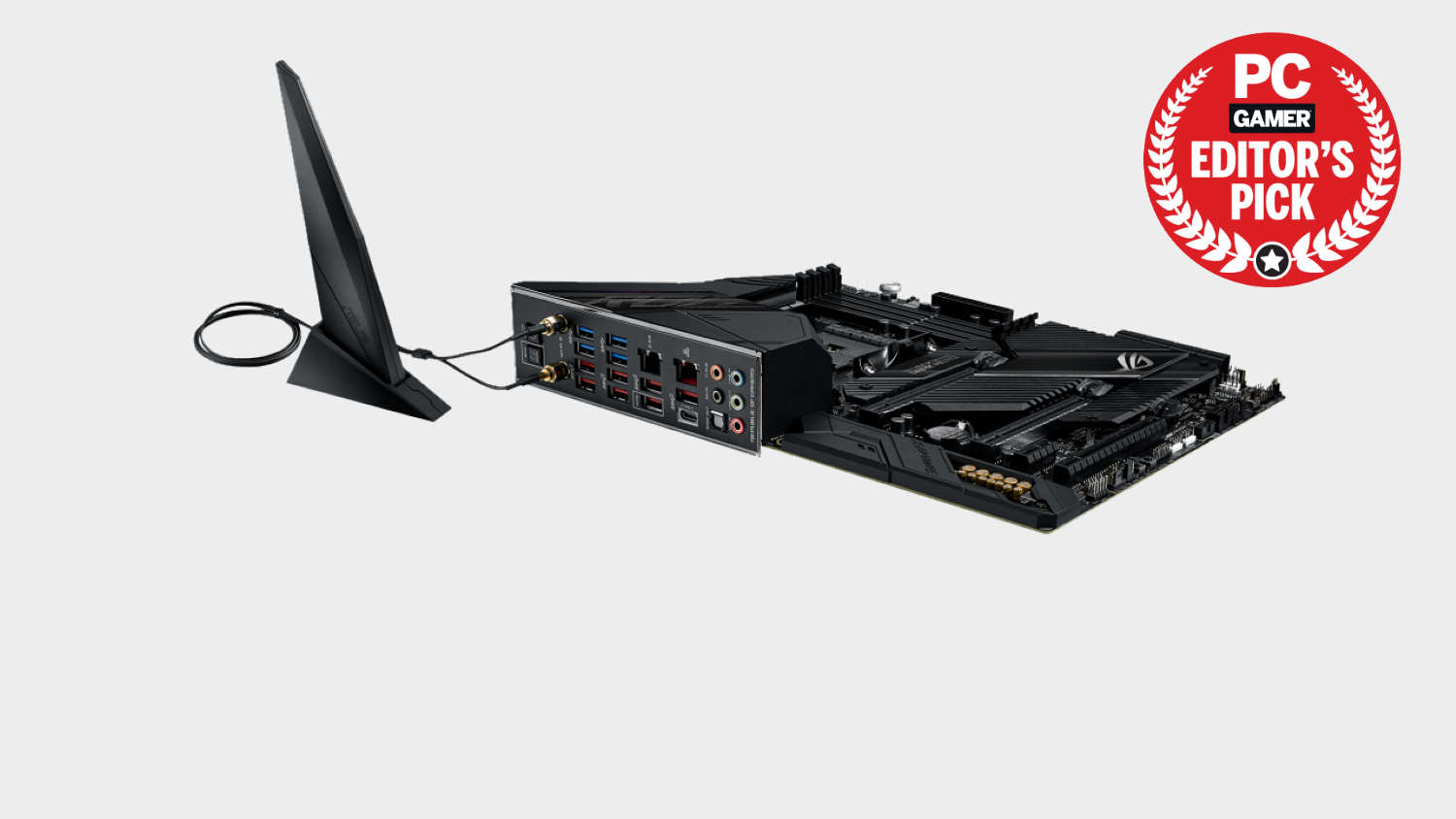
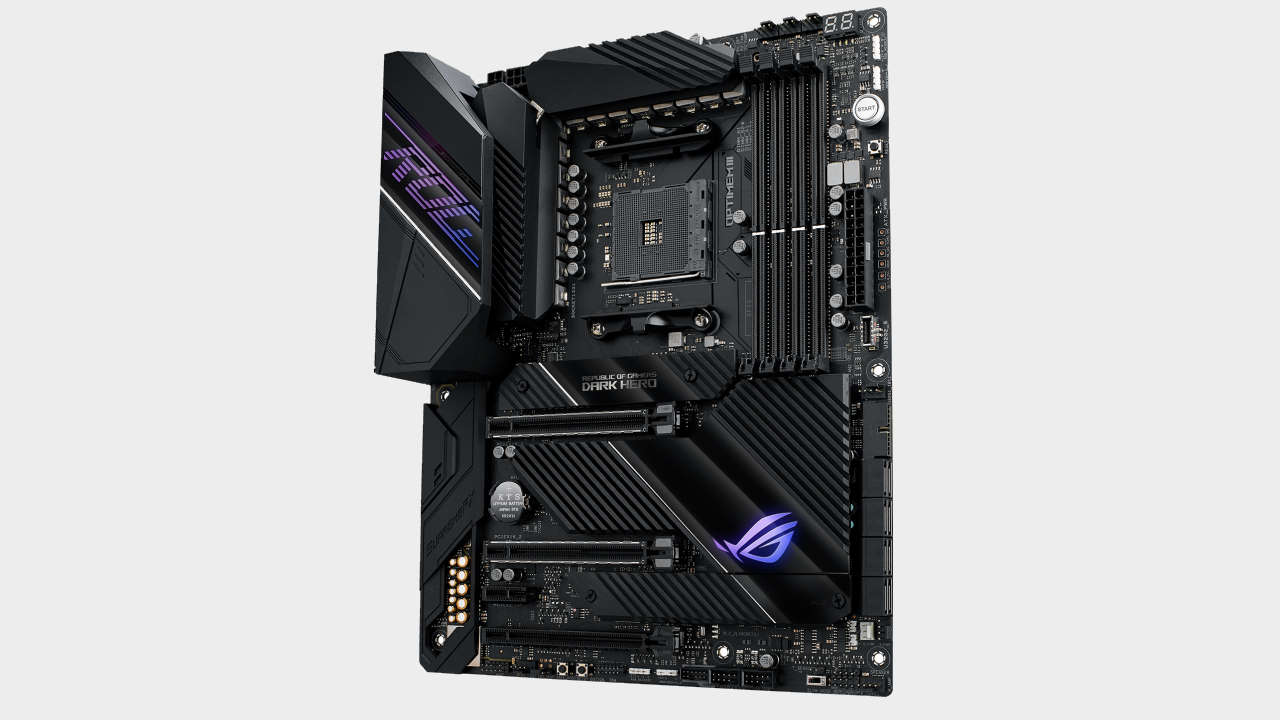
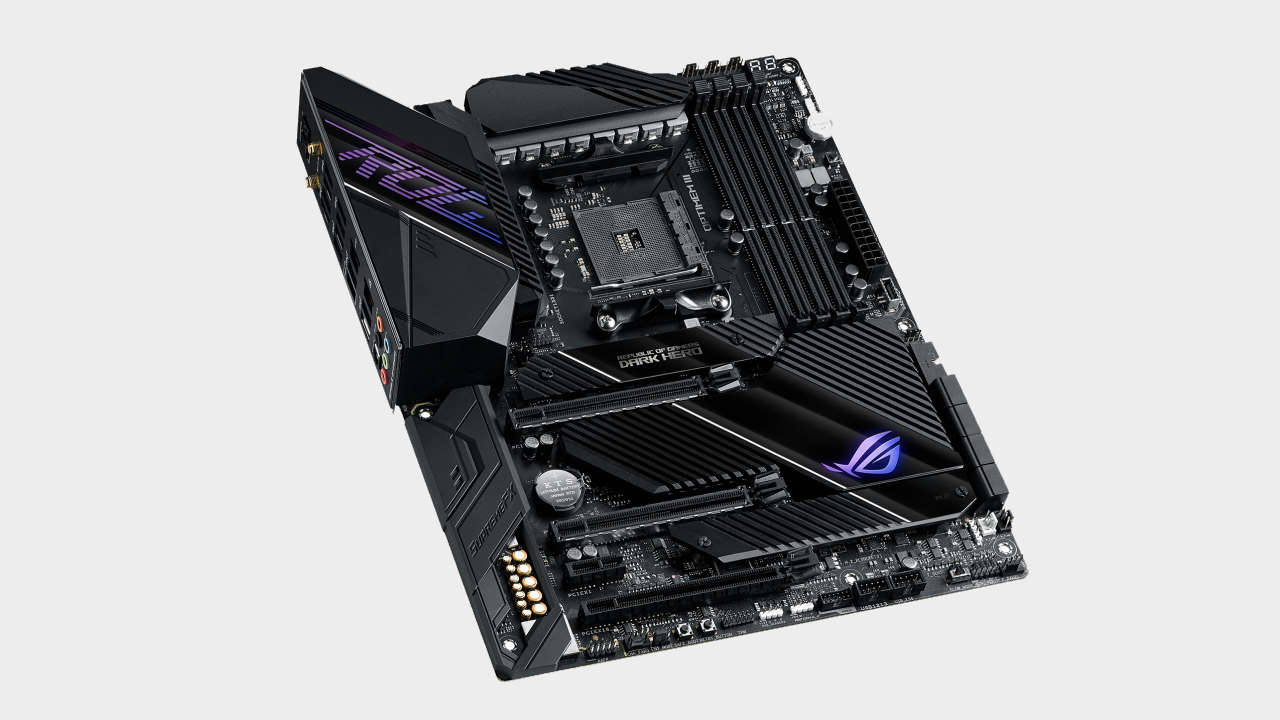
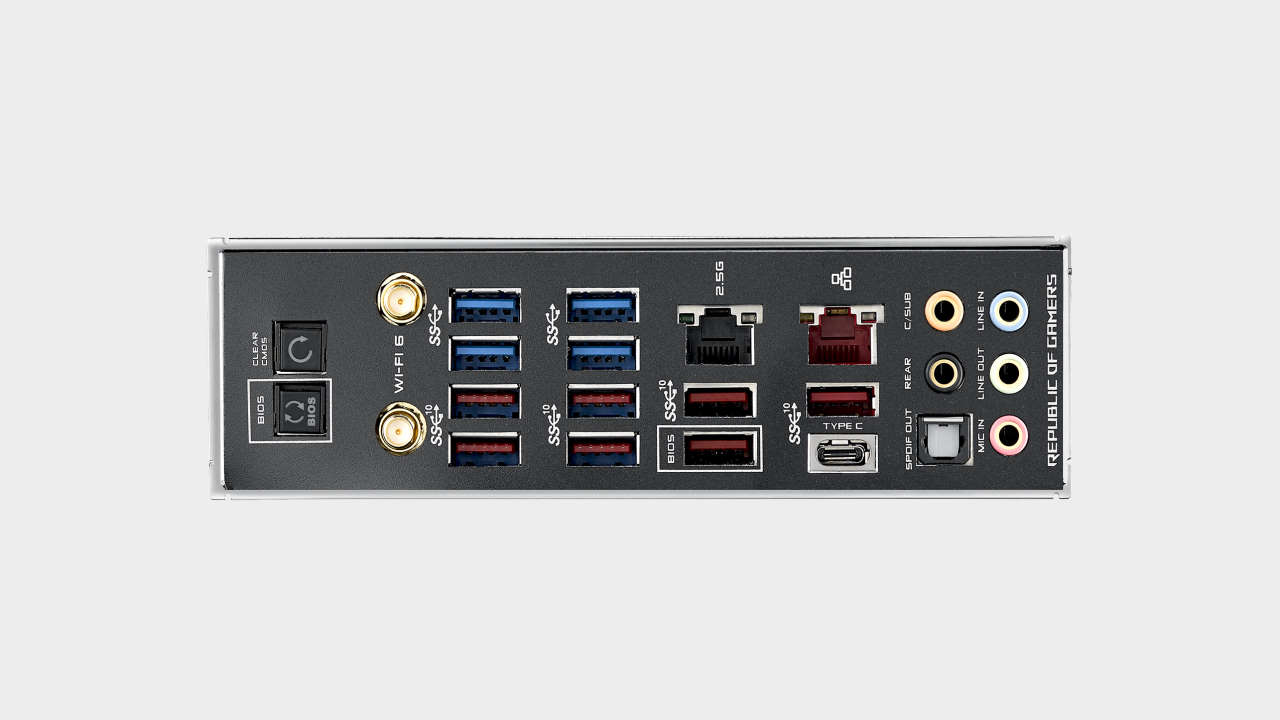
Asus' ROG Crosshair VIII Dark Hero wants to be the last AM4 motherboard you'll ever need. But what is it that makes a great motherboard? Features are important, as is a stable and refined BIOS, value for money, a good design, but intangible. Sometimes it's that the damn thing works.
Motherboard testing is often one of the most painful things a tech journalist has to do. With some boards, you have to fight it to get it to do what you want, or expect it to, or have to or crank up some voltage setting to a level you don't want to, but the Dark Hero boots the first time, even as we played with the memory clocks and timings and the Infinity Fabric.
The Crosshair VIII Dark Hero might not be the best AM4 motherboard ever made, we'd have to review a few hundred others to make that claim, but it's an easy claim to make that the Dark Hero is undoubtedly one of the best AM4 motherboards we've ever used. Time and months of user feedback will determine if the Dark Hero assumes a position as one of the truly legendary ROG motherboards, but we wouldn't bet against that happening.
Read the full Asus ROG Crosshair VIII Dark Hero review.
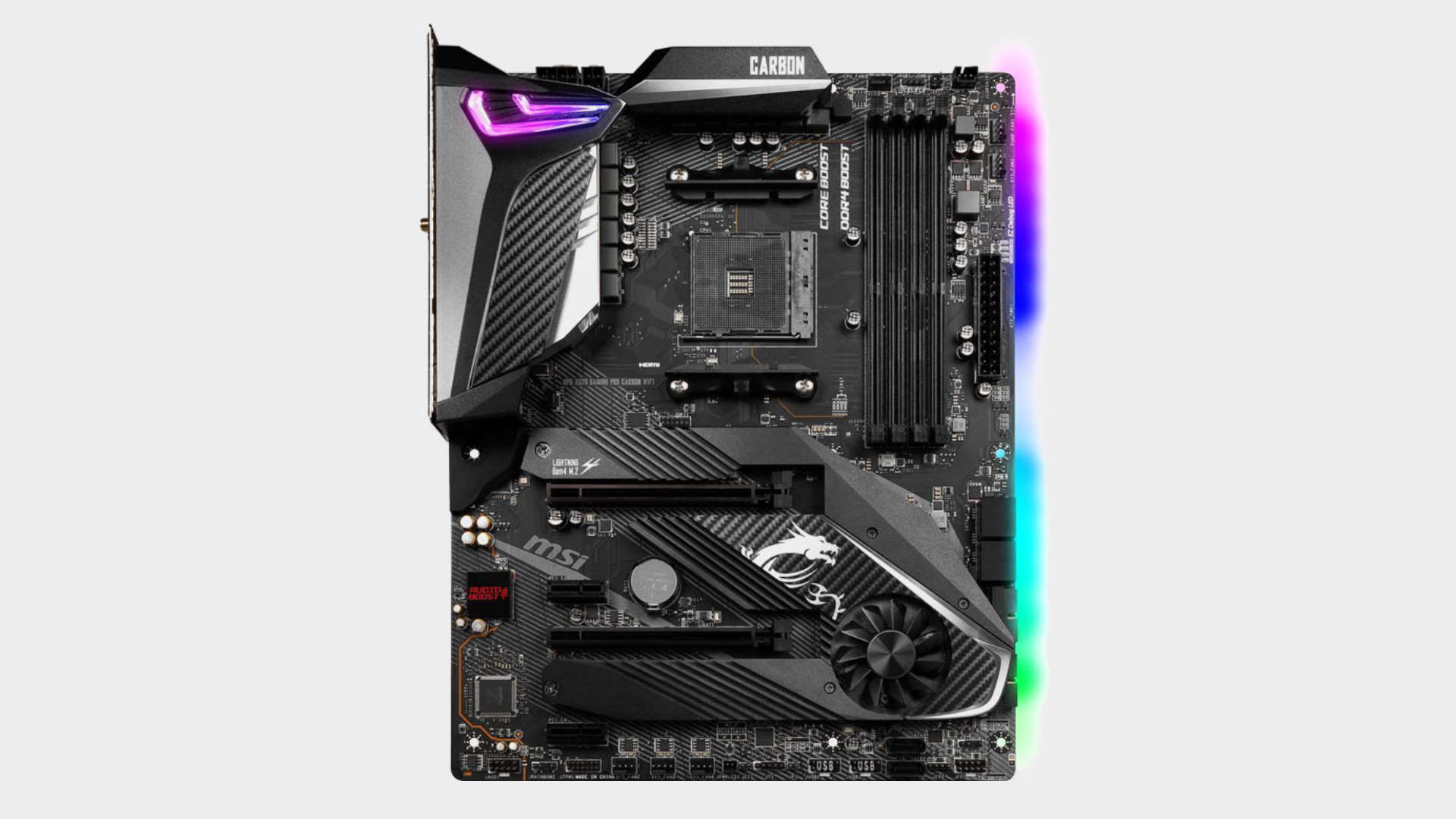
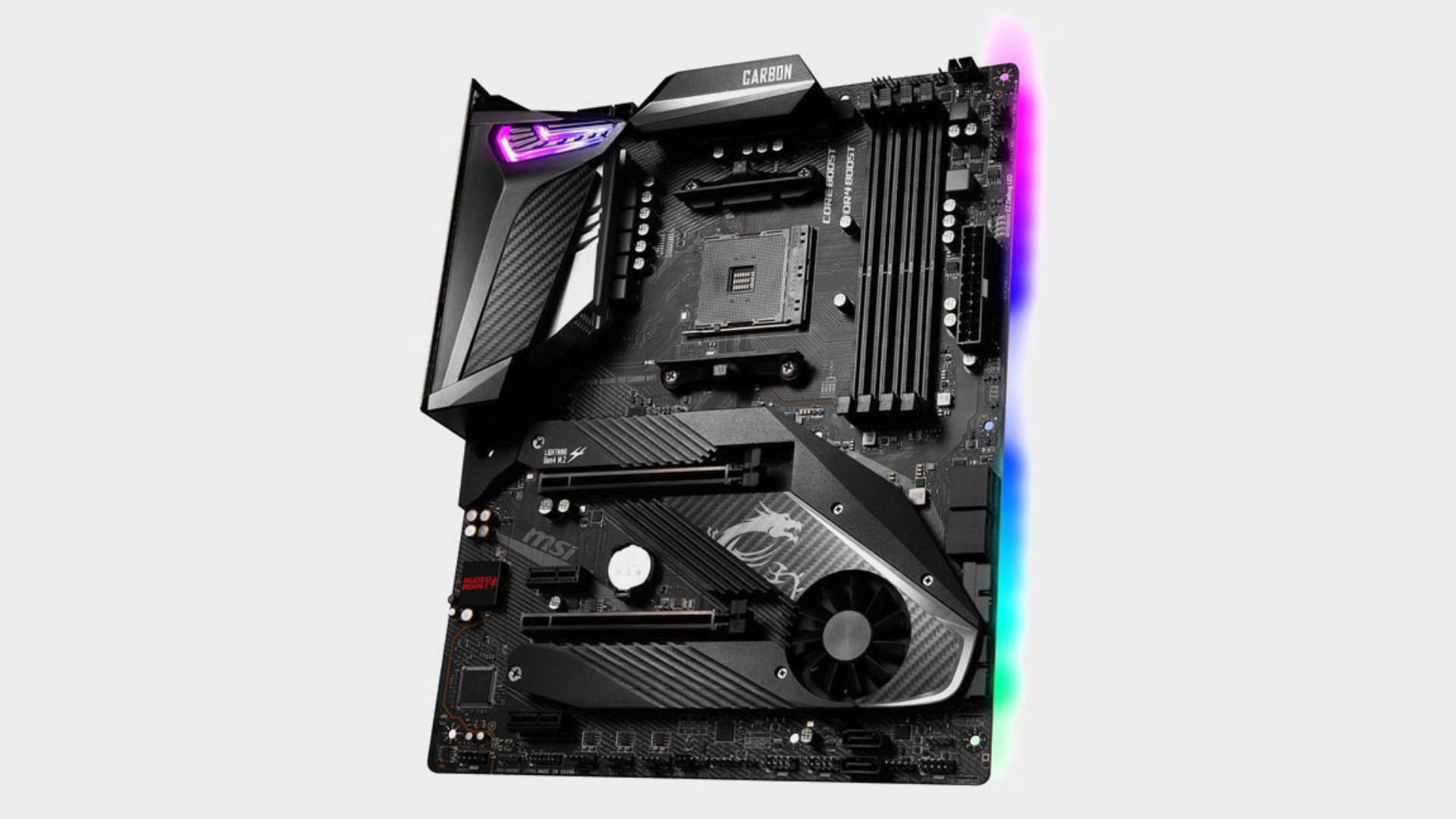
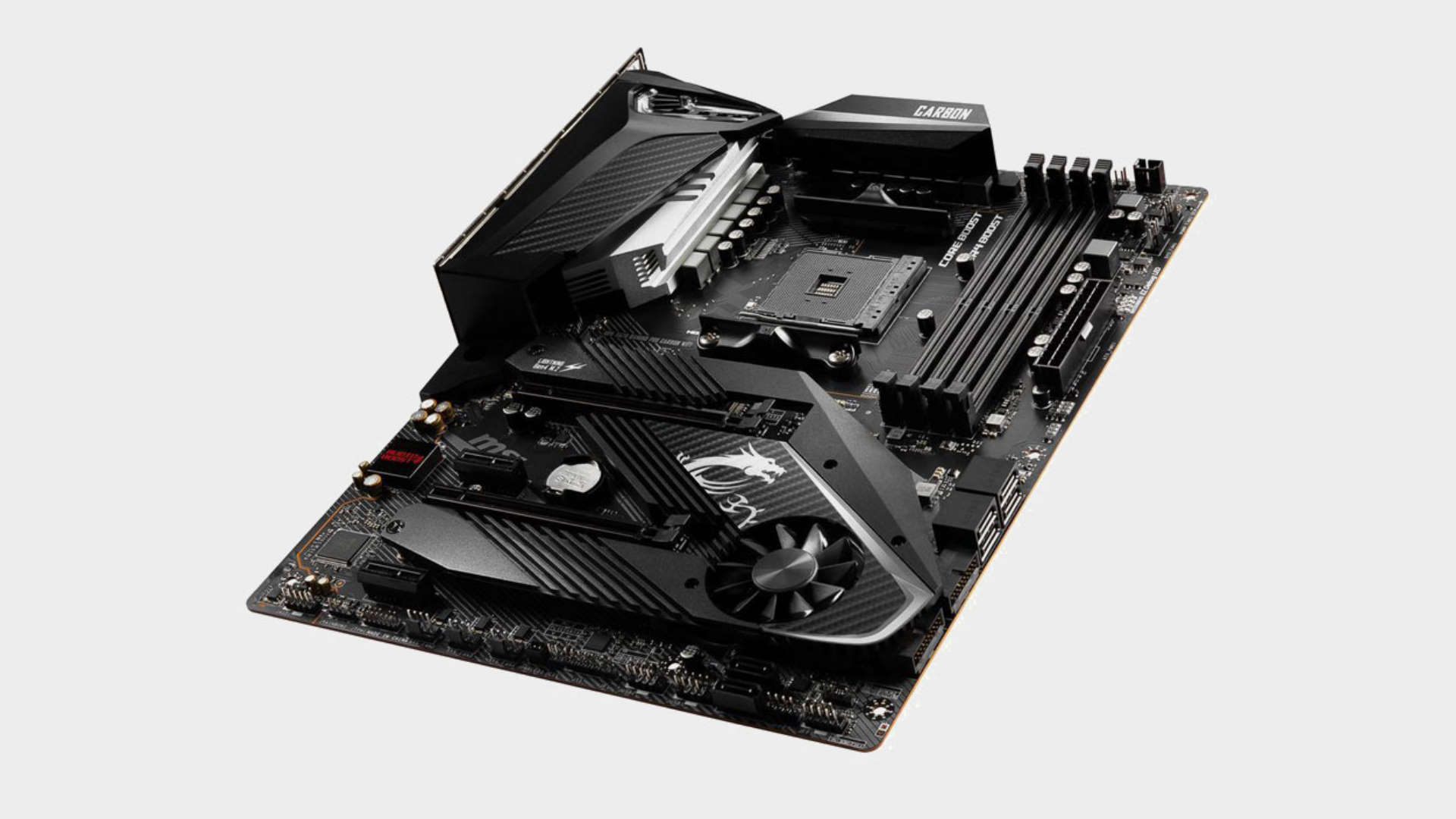
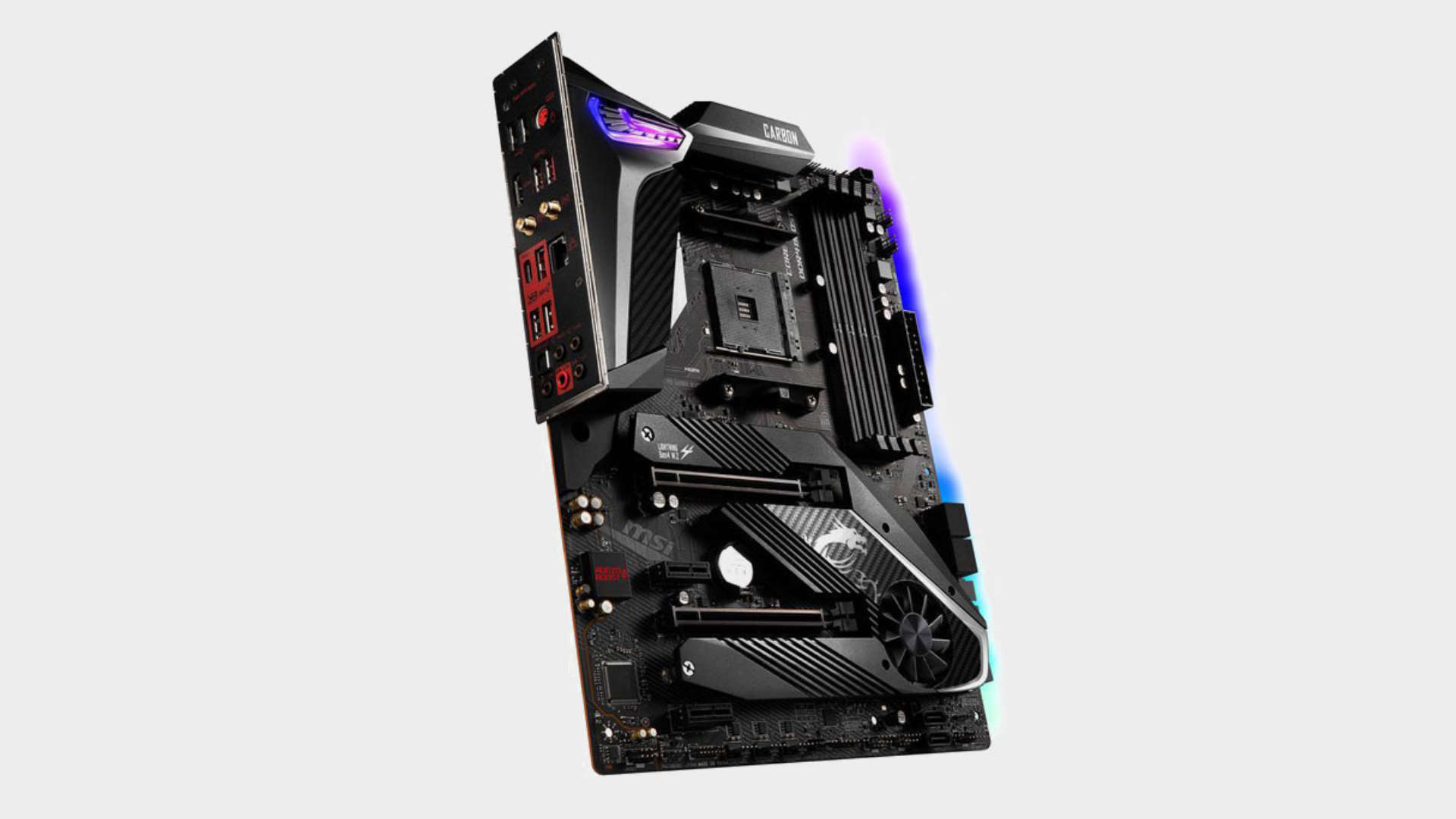
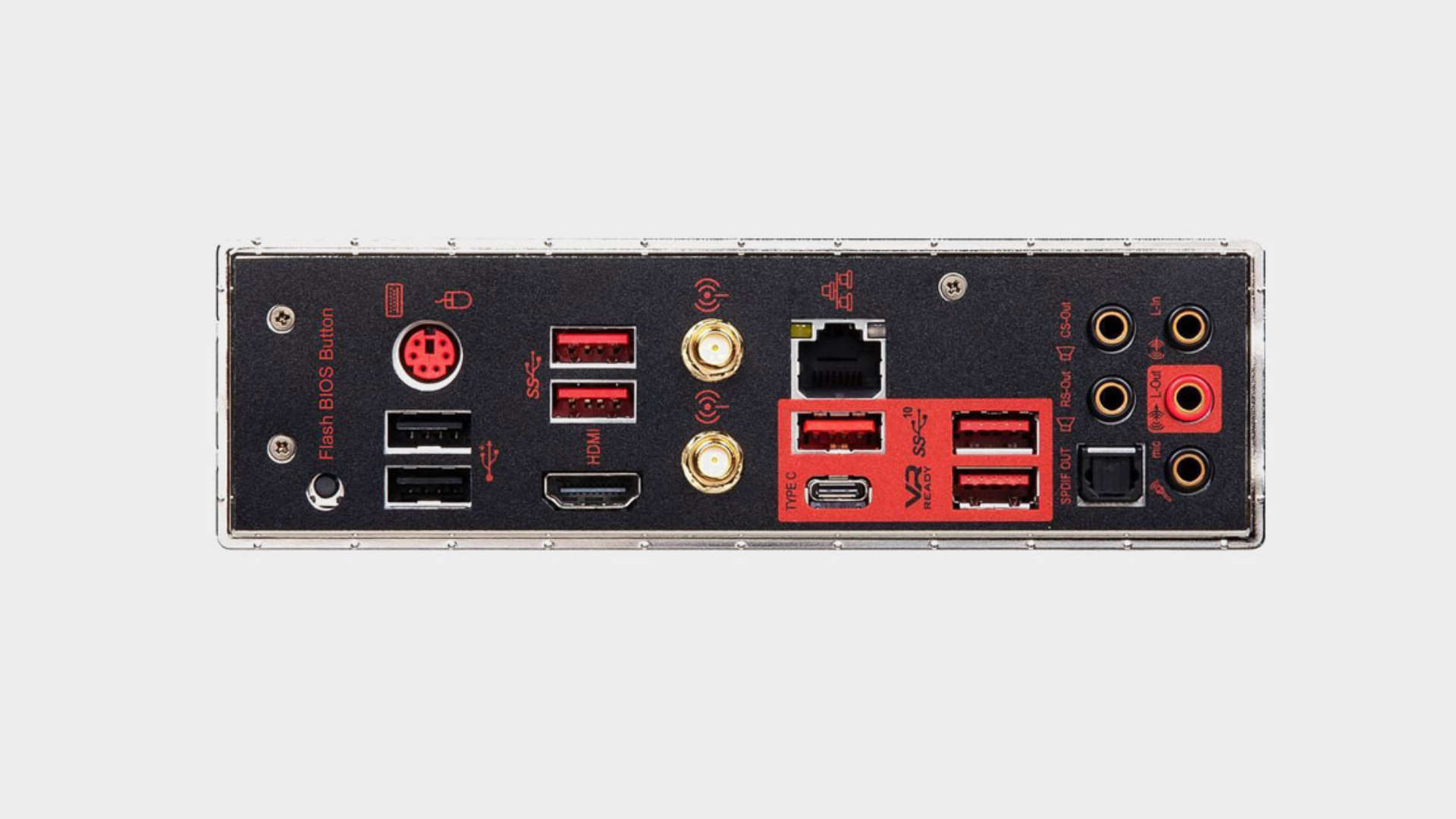
The MSI MPG X570 represents an amalgamation of bleeding-edge motherboard tech, built to help you get the most out of AMD's high-end Ryzen 5000 processors, such as the Ryzen 9 5900X or Ryzen 9 5950X. It has four DIMM slots that can handle speeds up to 4,400MHz (although there's not much point going beyond DDR4-4000) and two PCIe 4.0 M.2 slots—MSI's MPG X570 is all about getting the most out of the best components.
The rear I/O panel features seven USB Type-A ports for peripherals, as well as a single USB Type-C port for connectivity and high-speed data transfer. So you won't go without precious ports for at least, er, a week.
The MPG X570 supports Wi-Fi 6, and while that does necessitate a Wi-Fi 6 compatible router for the fastest speeds, it will also work with existing Wi-Fi 4/5 routers (formerly 802.11n and 802.11ac). Also of note is the HDMI port, which many X570 boards omit (not that we'd recommend using an AMD APU with integrated graphics in a high-end board like this).
The pair of M.2 slots each have dedicated heat shields and fans, and while this does help prevent potential thermal throttling, it makes installing or replacing them a more delicate process than with their more-exposed counterparts.
The MPG X570 features enough compatibility to get the most out of your hardware now and in the future, provided you're willing to pay a premium for it. While it's an excellent motherboard, if you aren't already committed to a shopping list of top-of-the-line components, you may want to consider a slightly less expensive board for your needs. The MSI X570-A Pro omits some extras like Wi-Fi and the M.2 shields, but it still runs fine and costs nearly $100 less.
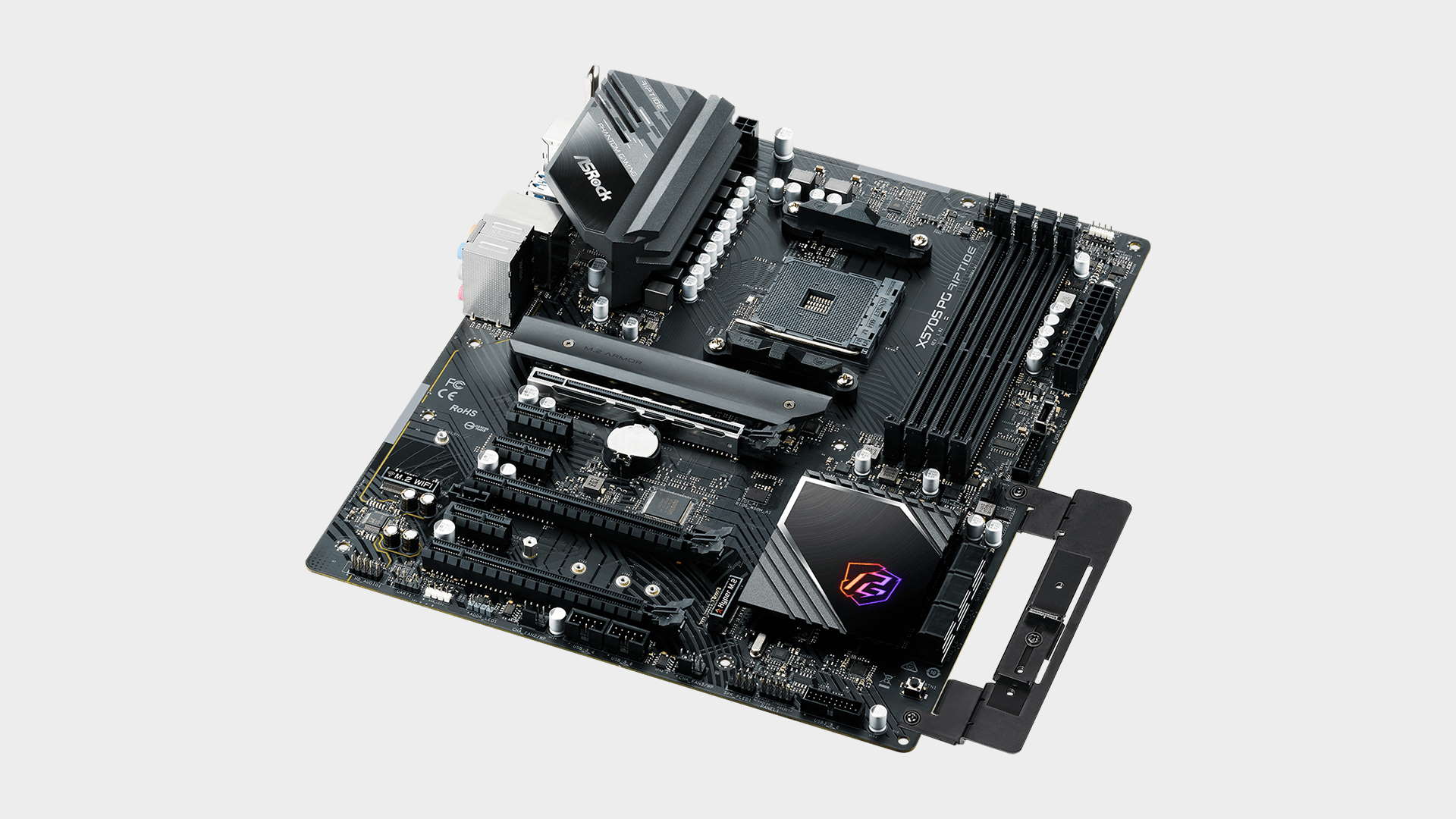
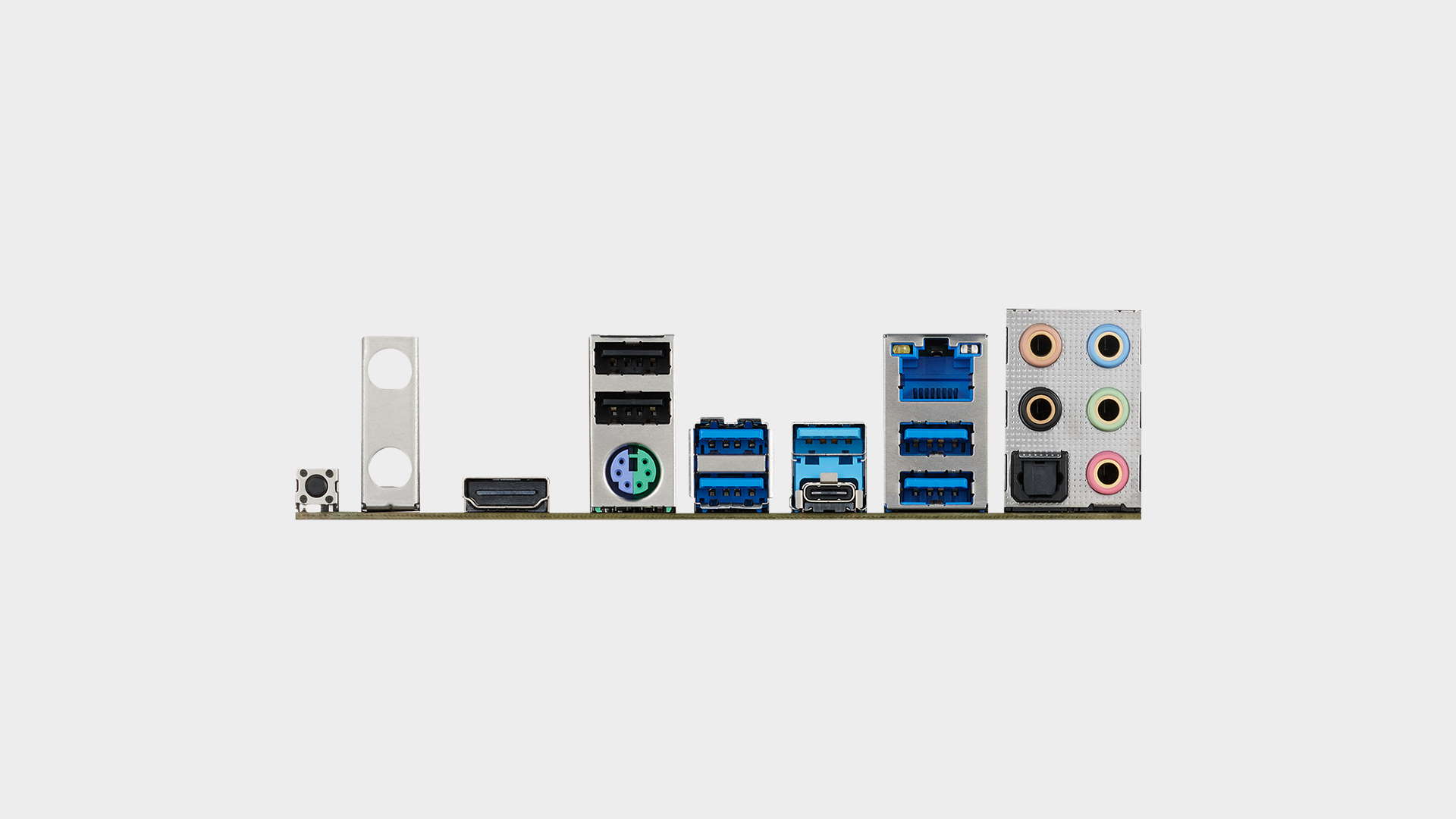
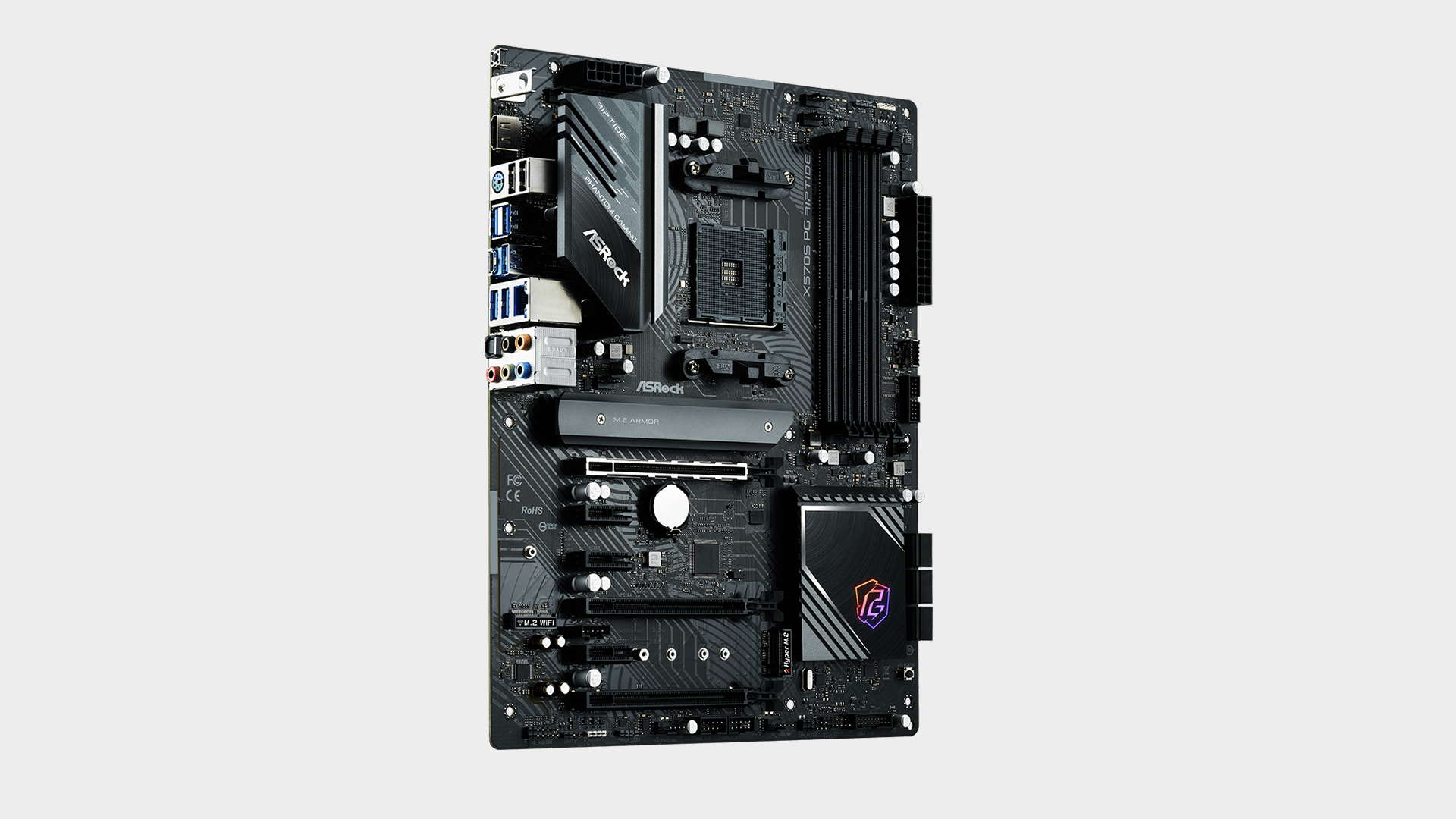
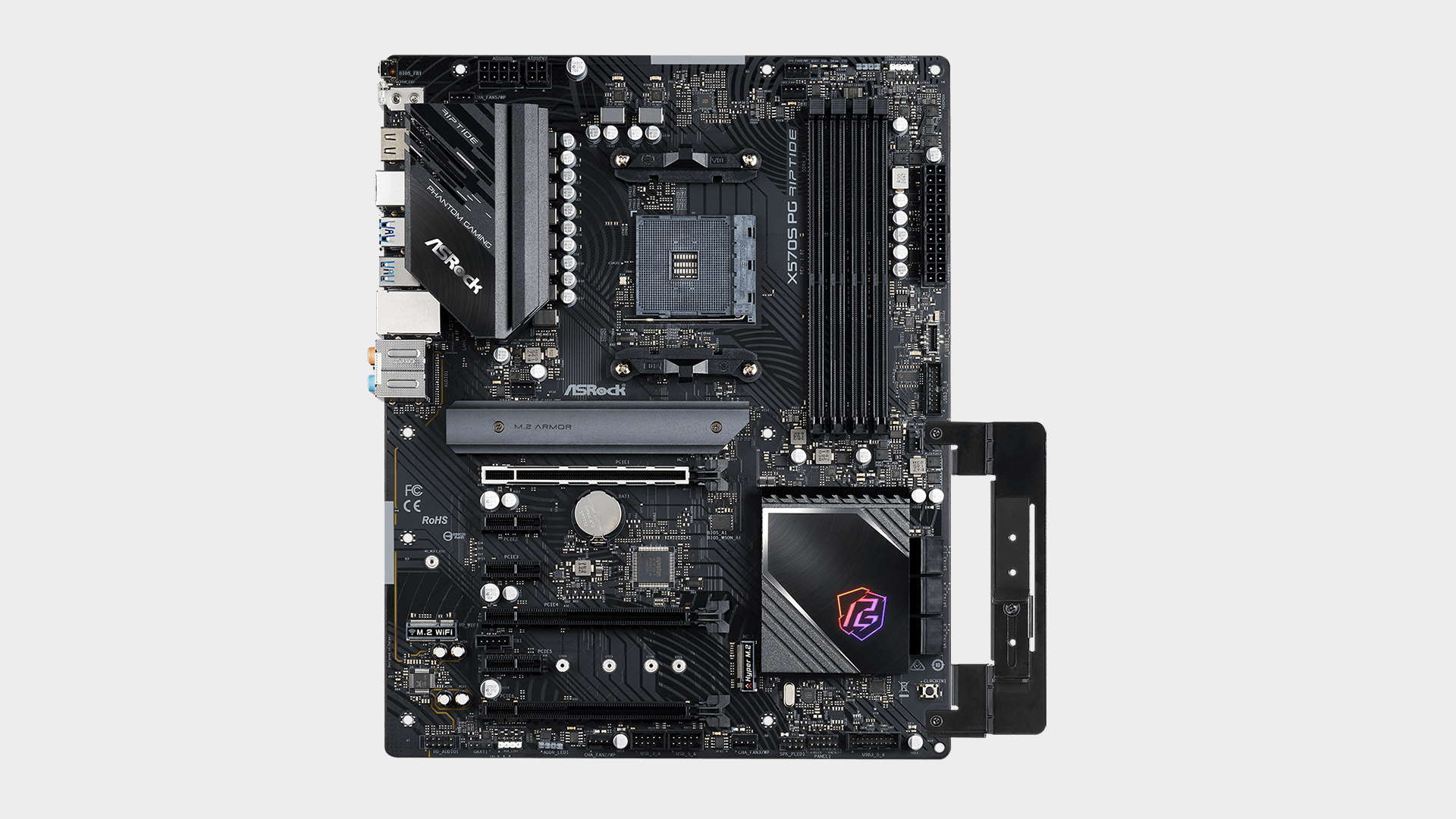
If you're looking for a sub $200 AMD motherboard, the typical advice would be to look at one of the many quality B550 offerings. It's important not to overlook the new X570 versions, though. The basic chipset is a few years old, but with the newly released X570S models, maybe it's time to take a more serious look at AMD's top boards.
Notably, the 'S' in the new X570S nomenclature denotes silence. Early generation X570 boards, with only a few exceptions, all came with pesky, whiny chipset fans. As well as passive chipset cooling, the new X570S boards enable upgraded connectivity options, including faster than Gigabit LAN or WiFi 6E. Sadly the ASRock X570S Riptide doesn't have WiFi 6E, but it does have an excellent price for a top chipset board.
The X570S Riptide is a solid budget offering that will happily occur at the heart of a top-spec PCIe 4.0 system. It won't win the feature showdown battle with more expensive boards. Still, suppose you're looking for an affordable motherboard for a fast gaming system. In that case, it's a great shout, especially if you value one that's silent and well built but free of superfluous extras that do nothing for performance. The ASRock X570S PG Riptide, then, is a strong budget contender for the best AMD motherboard.
Read our full ASRock X570S PG Riptide review.
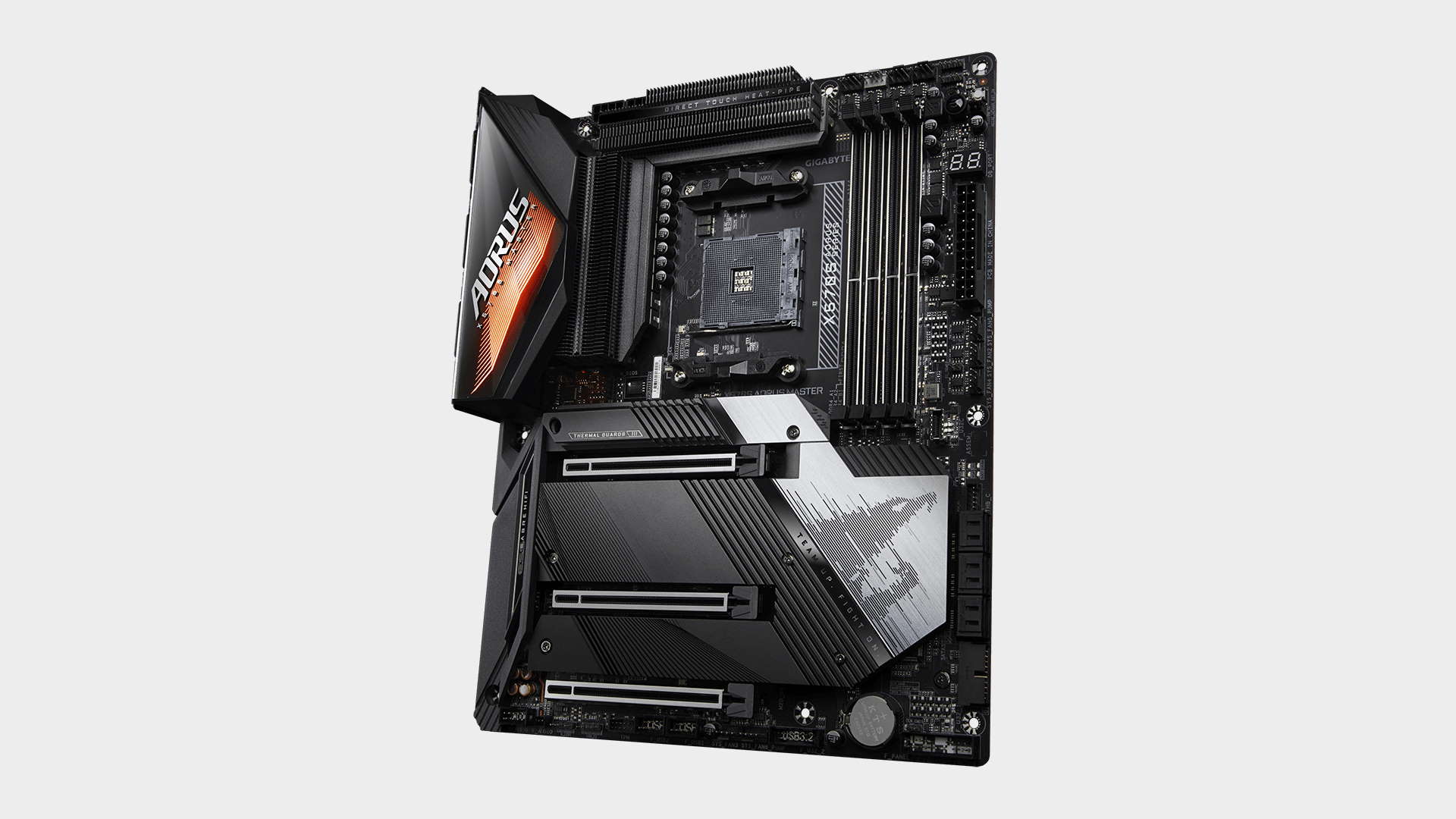
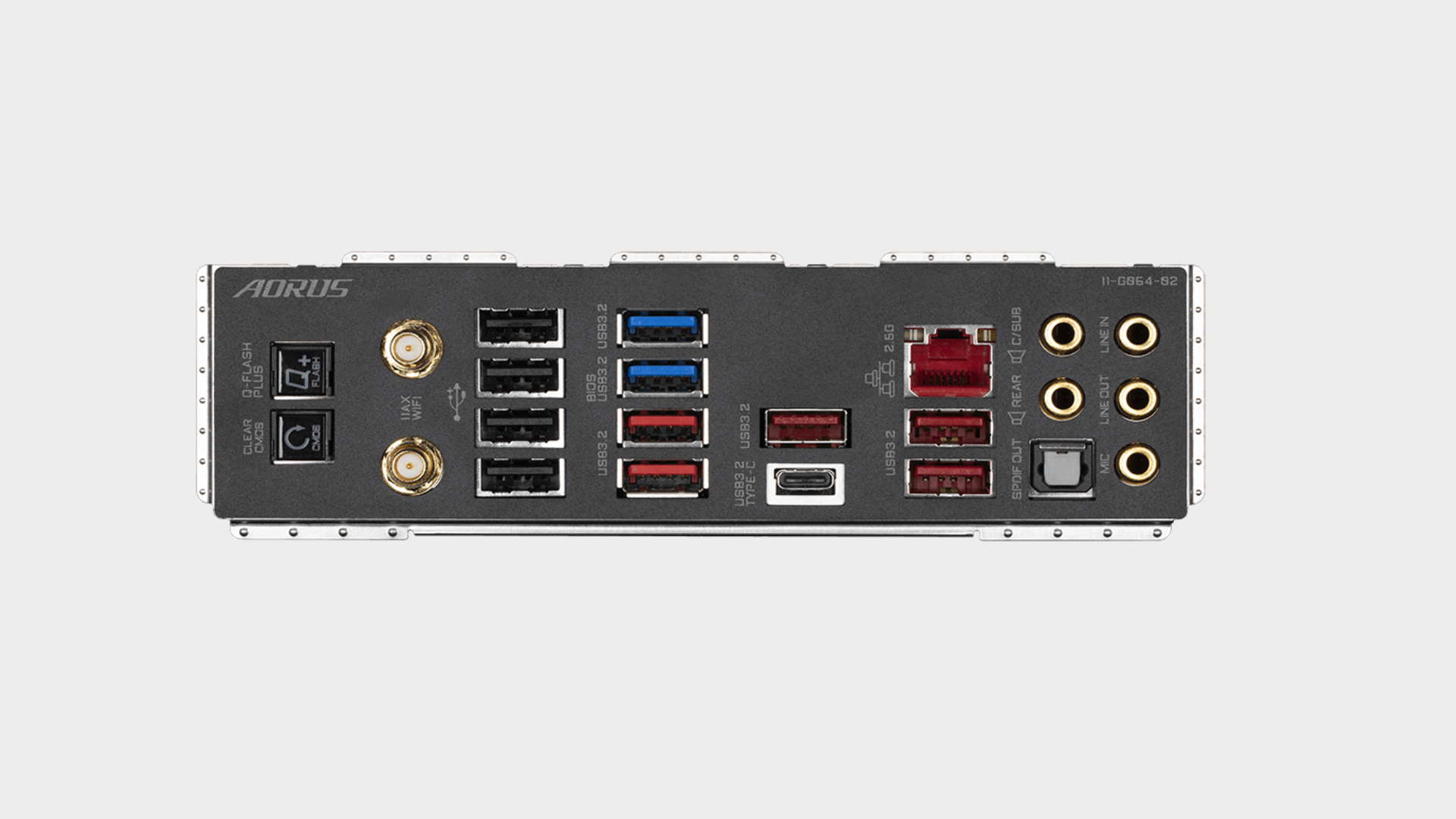
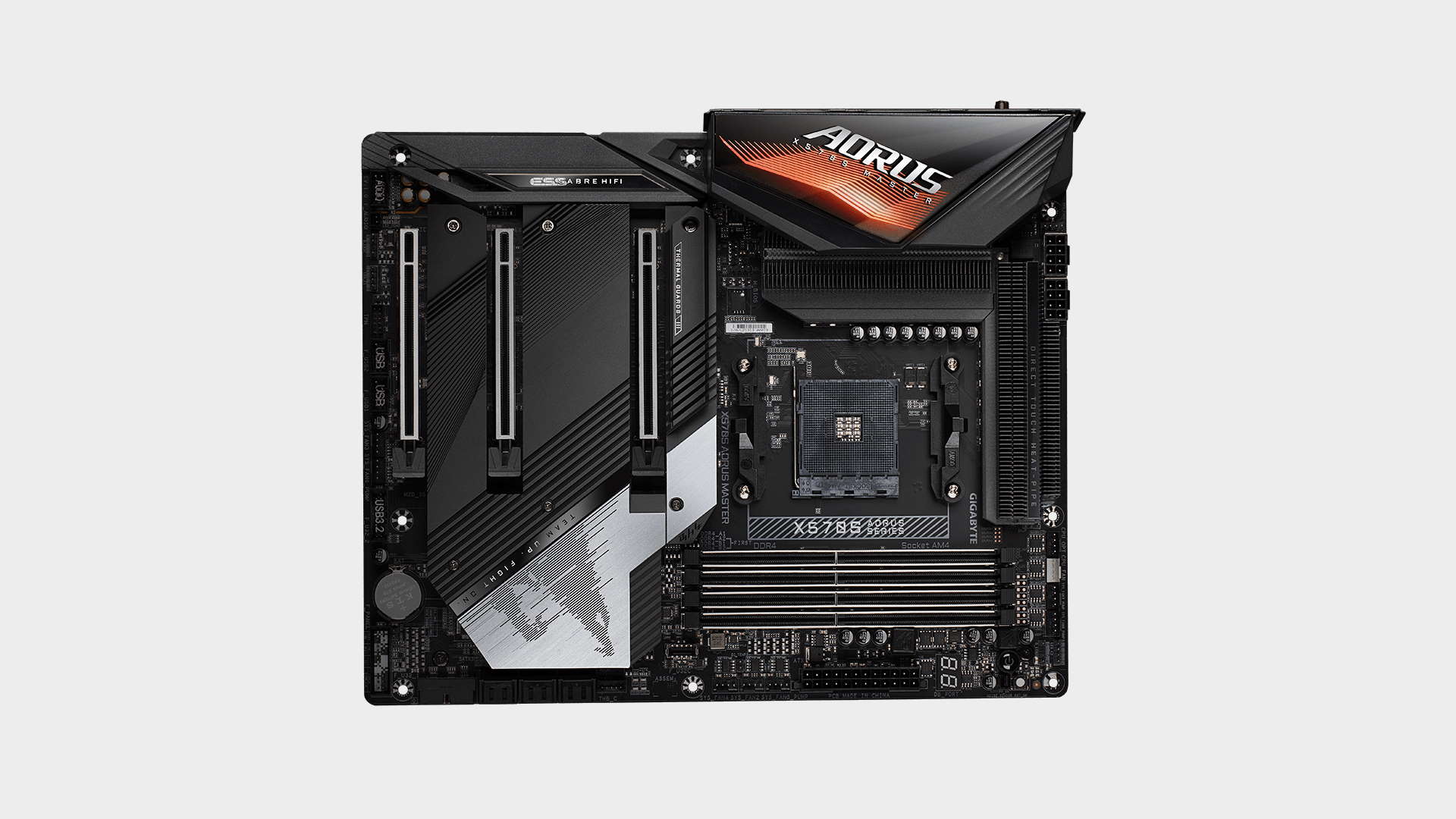
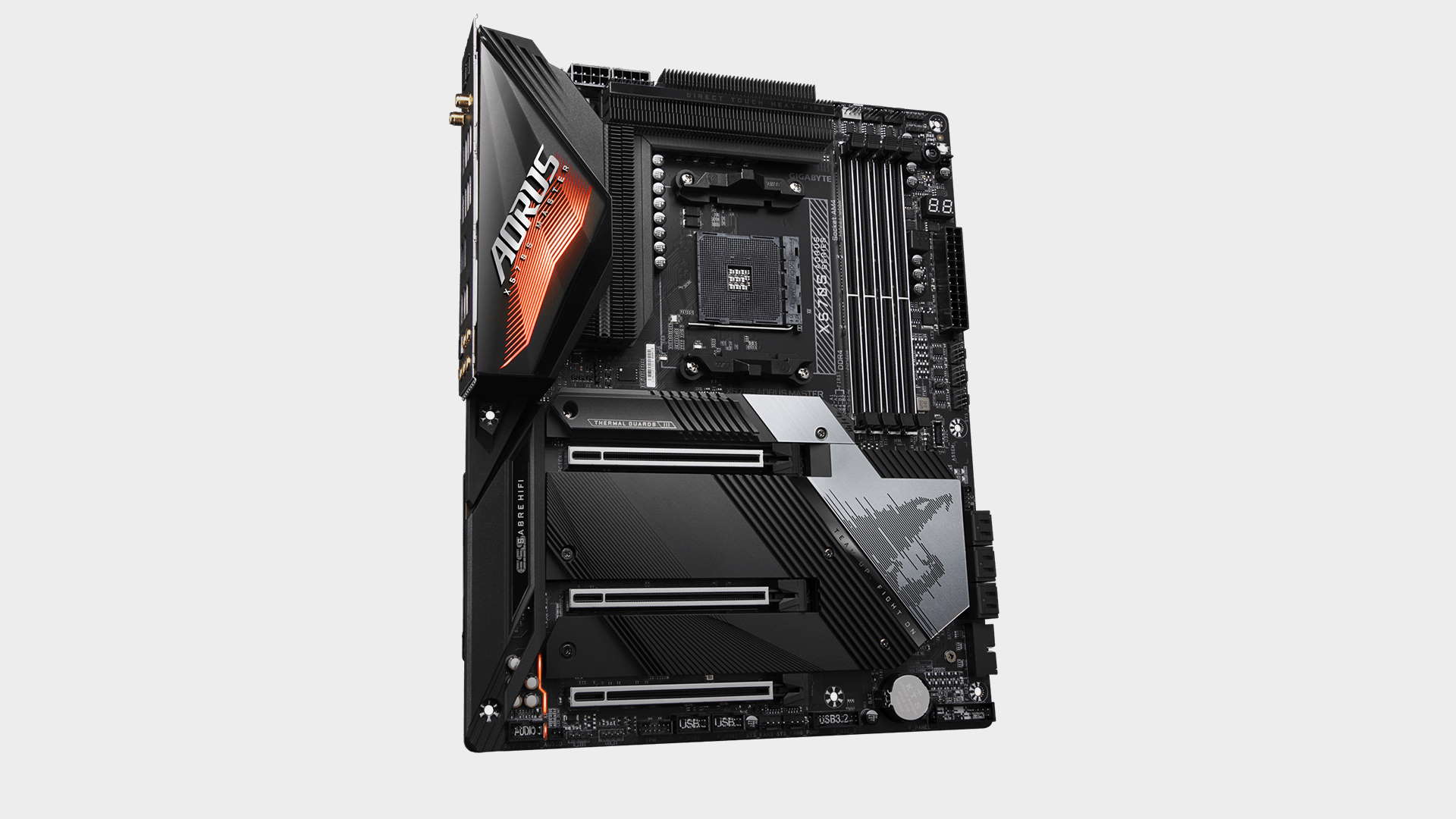
The X570 chipset might be a couple of years old, but that doesn't mean it's time to put it out to pasture just yet. With PCIe 4.0 lanes, it's possible to add the year 2021 features quite easily. That's precisely what Gigabyte has done with the X570S Aorus Master. It shares a lot in common with its already highly regarded 2019 predecessor. With the inclusion of some critical feature updates and design tweaks, the X570S Aorus Master should remain a best-in-class contender for AMD motherboards.
When we first saw X570 boards en masse at Computex in 2019, one of the things that concerned us was the almost universal presence of chipset fans. A 15w TDP combined with the heat of several PCIe 4.0 drives meant that active cooling was required in many cases, though thankfully not all the time. The S in X570S denotes silence. The base chipset design hasn't changed, but Gigabyte has added a lot of surface area to the cooling assembly, with almost the entire bottom half of the board now covered with heatsinks.
Gigabyte deserves credit for continuing to use finned VRM heatsinks, which add a lot of surface area. They're proof that it's possible to blend function with form. A 14 phase VRM with 70a MOSFETS is enough to power a 5950X cooled by LN2 with headroom to spare, which means users of ambient cooling won't face any issue.
The rear I/O is fully featured, particularly when it comes to USB connectivity. Twelve ports consist of four USB 2.0, two USB 3.1 Gen 1, five USB 3.2 Gen 2, and a single Type-C USB 3.2 Gen 2x2 port. Something has to be done about that ridiculous USB naming scheme, but that's a story for another day. You get clear CMOS and BIOS Flashback buttons, antenna connectors, the standard audio ports with S/PDIF, and finally, a single Intel i225-V 2.5G LAN port.
The Aorus Master is packed with features that keep AM4 and X570 relevant and up to date. It's got loads of USB ports and storage options. It looks good too. A board around the $400 mark can't ever be considered affordable, but we feel it offers a good feature set at this price.
Read the full Gigabyte X570S Aorus Master review.
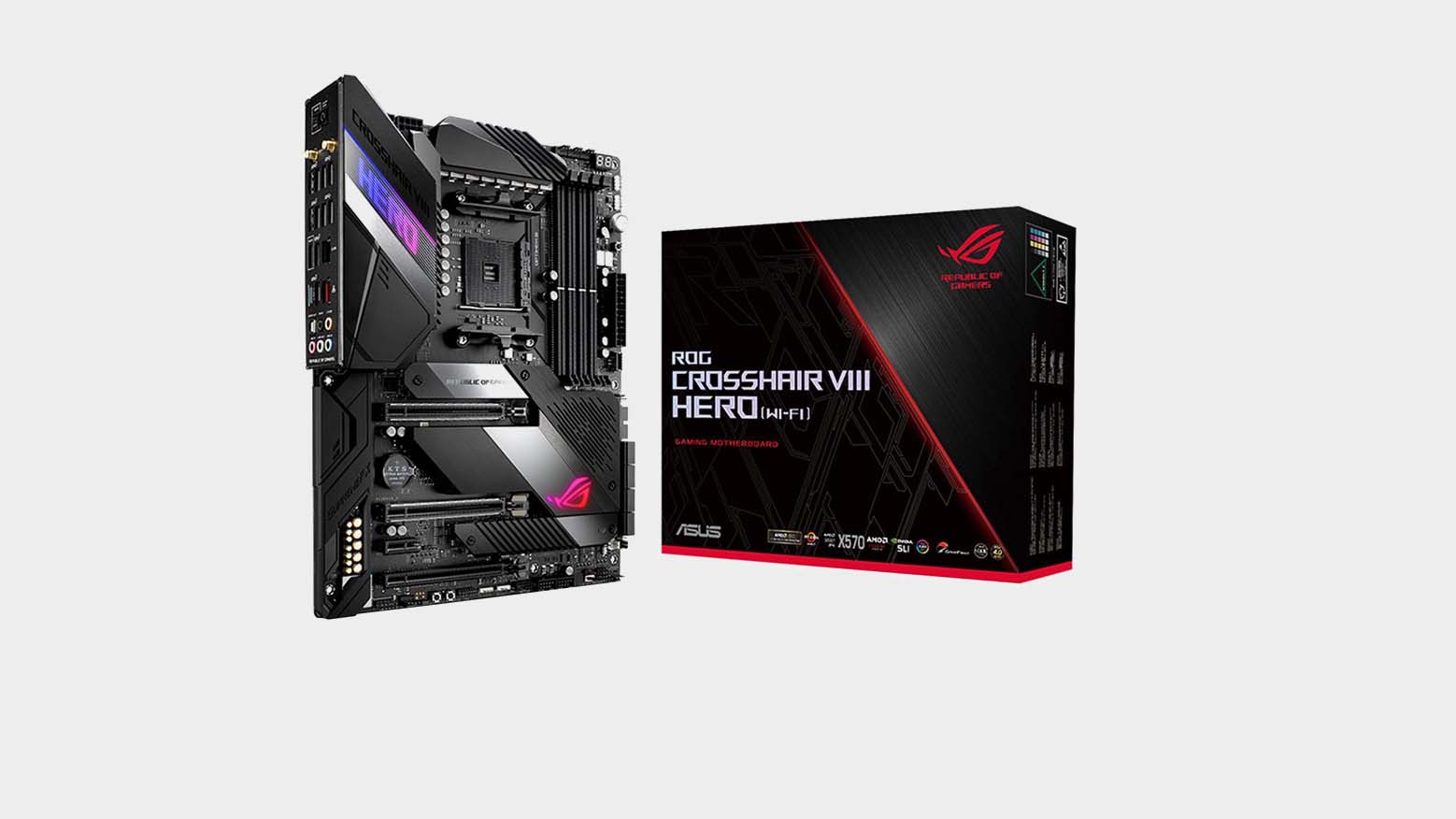
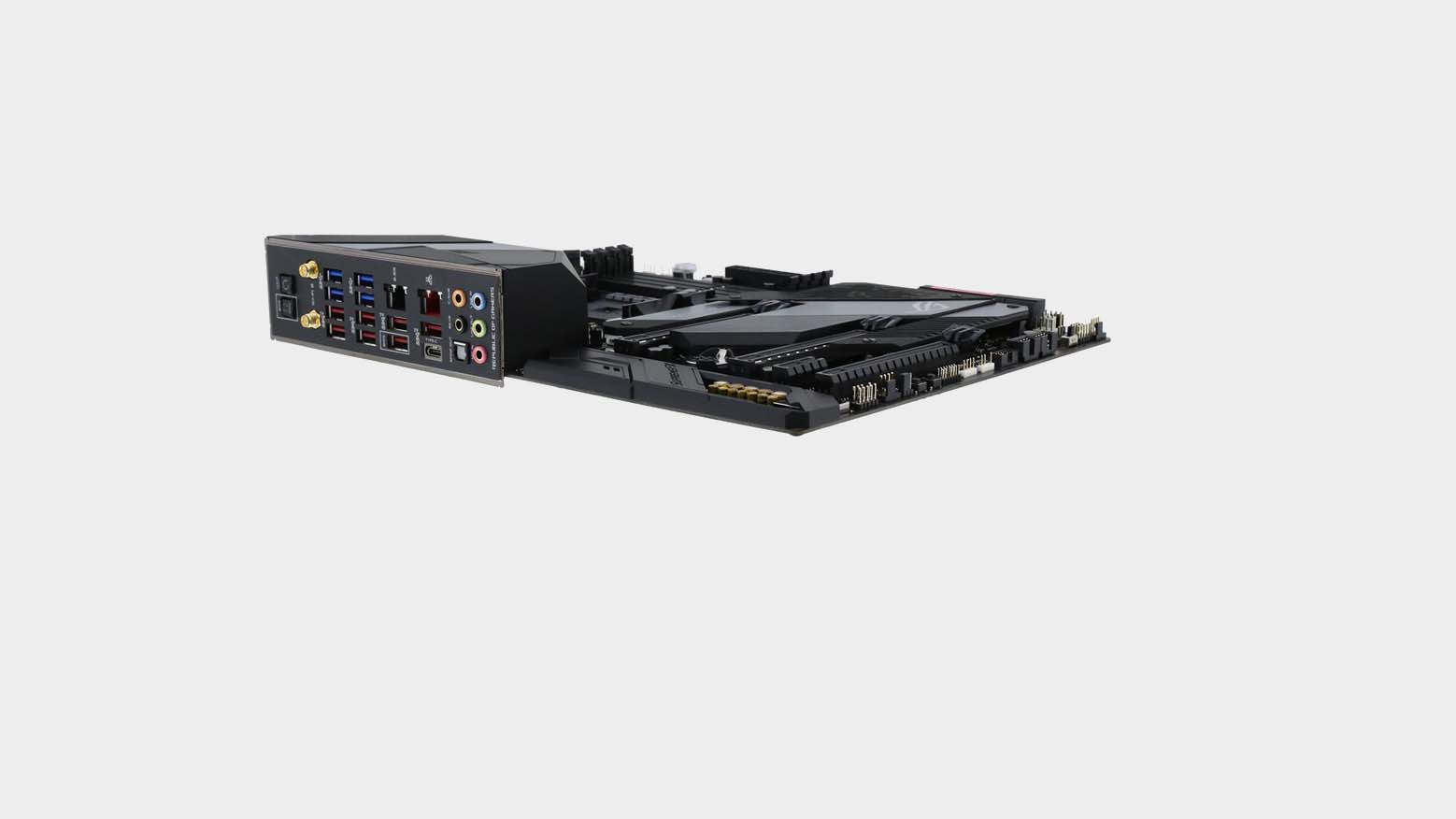
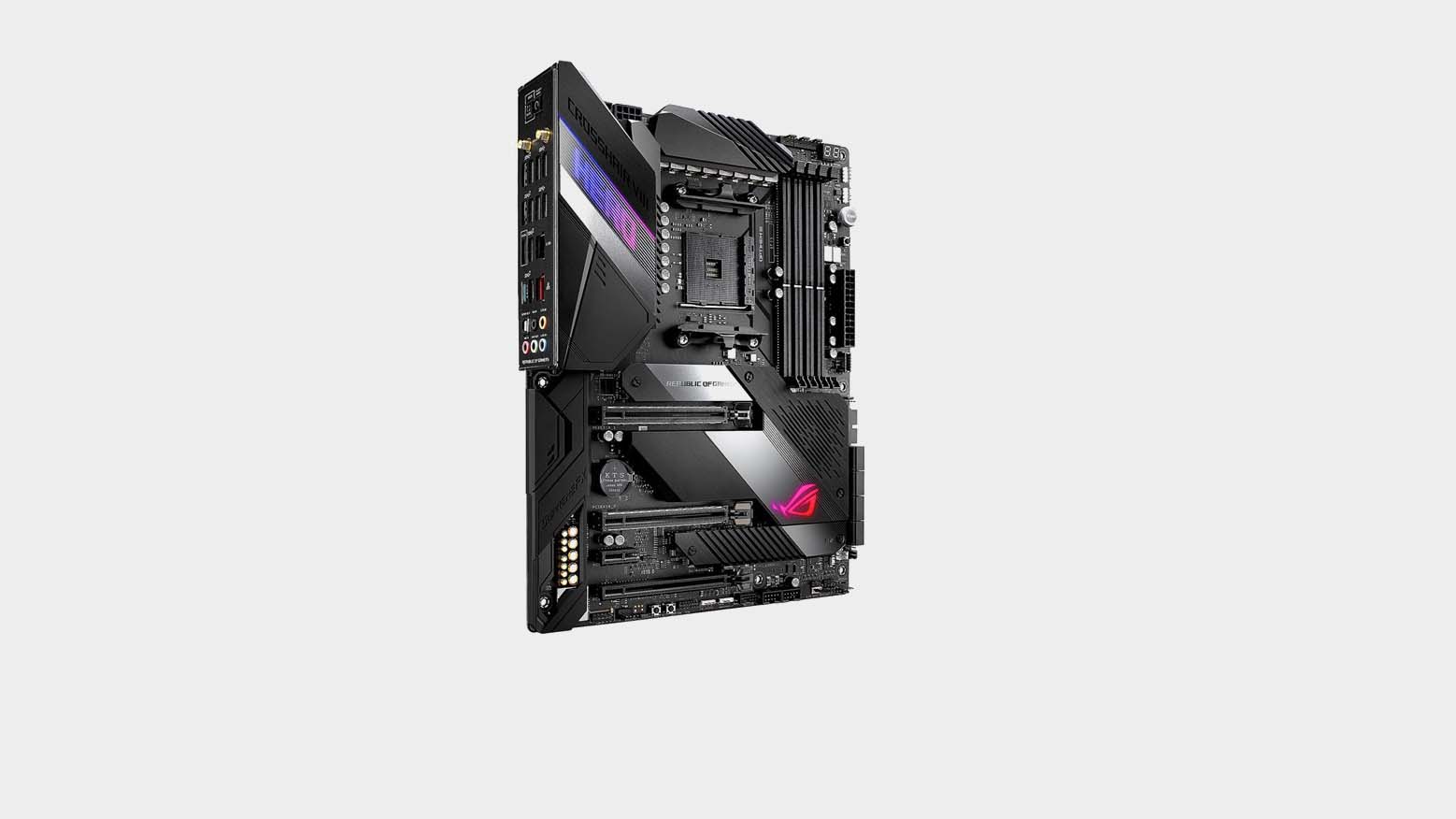
The Asus ROG Crosshair VIII Hero (Wi-Fi) is another excellent, if opulent, board for Ryzen 5000 processors. This AMD motherboard comes packed with all the trappings you'd expect, including an onboard thermal sensor, onboard power and reset buttons, and a BIOS flashback option on the rear IO panel. The board has its I/O shield pre-mounted to avoid any embarrassing mishaps during your build.
This standard ATX board can support a pair of GPUs in its PCIe ports and up to 128GB of RAM with its four DIMM slots. You also get a couple of M.2 SSDs slots. These specs are generally par for the course, however. An array of 10 USB Type-A ports, as well as a USB Type-C connector for front panel IO, provide ample support for any number of peripherals, which all help put this board a cut above its peers.
Sleek matte black and chrome finish and subdued RGB lend an air of subtlety to this particular board, and while the seamless M.2 heat shields make the Crosshair one of the cleanest looking boards on this list, it does make swapping out SSDs a bit of a pain. This isn't a glaring issue but does add an extra step whenever you're trying to upgrade your storage.
Overall, this board has many attractive features, but its comparatively steep price tag may draw your eye to more affordable offerings.
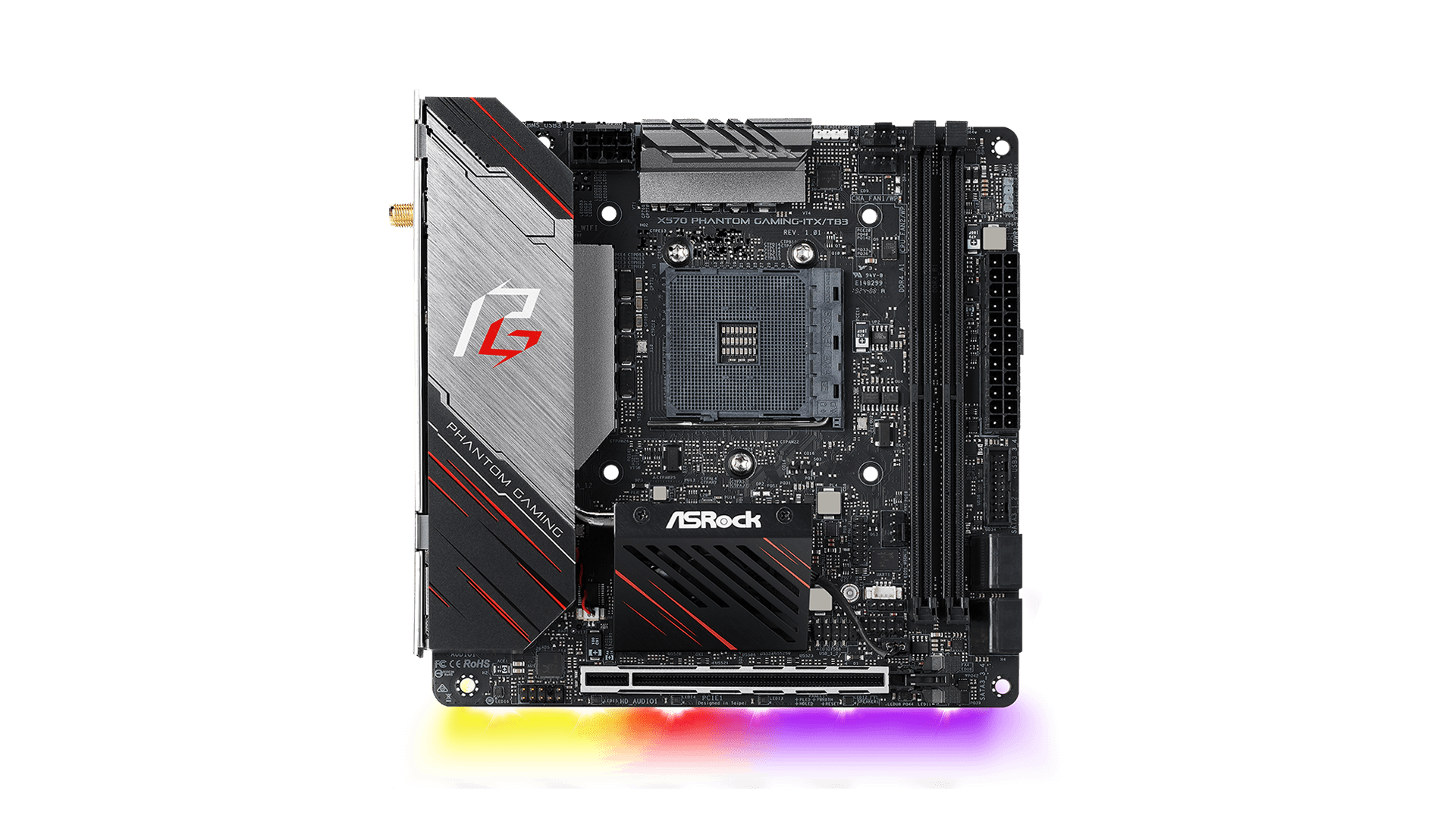
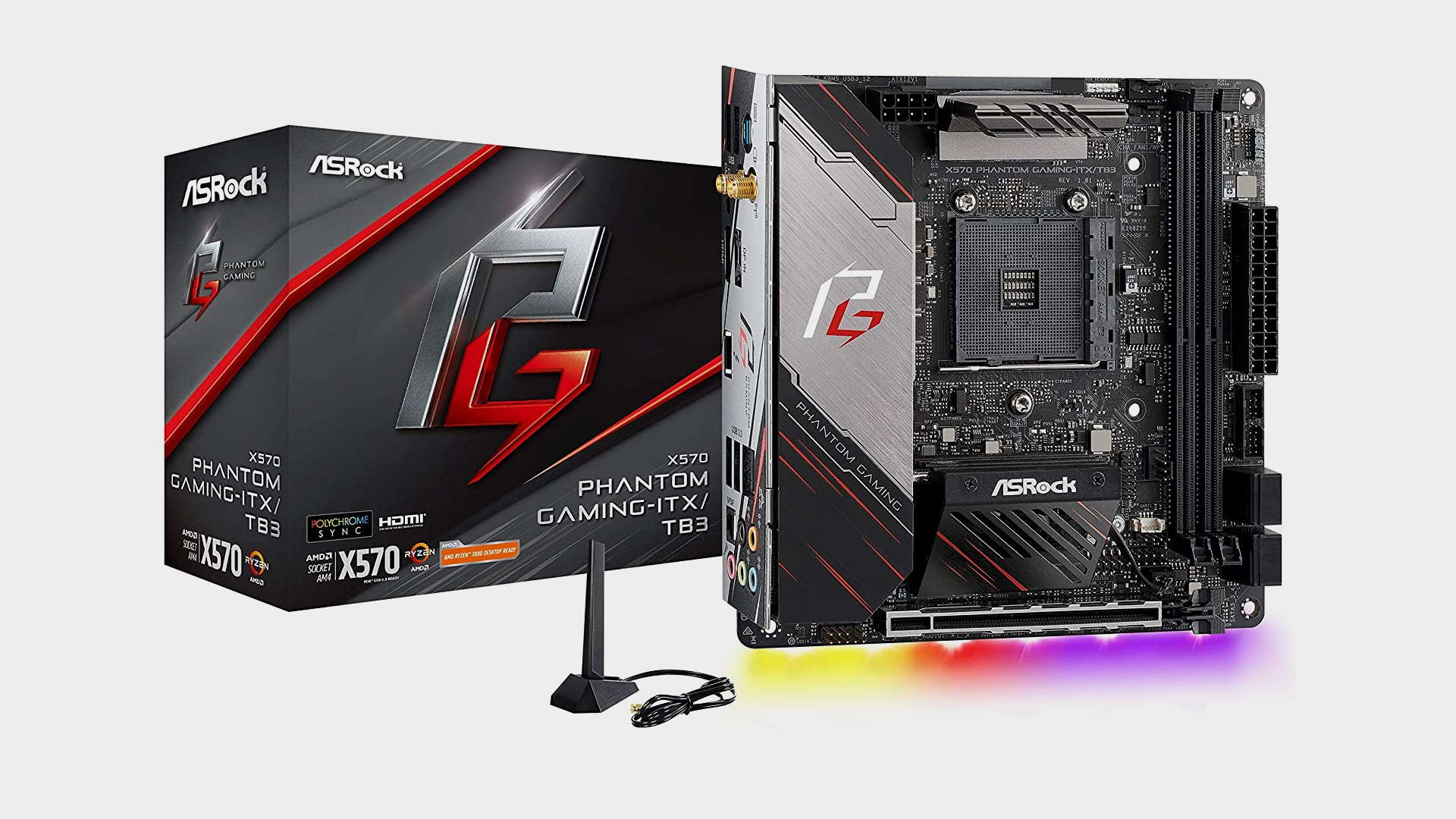
ASRock has made some great AMD Ryzen motherboards over the years, and this one packs in the latest high-end X570 chipset, forward-looking features, and serious performance. The $200+ price point might be a bit tough to swallow, but plenty of X570 motherboards sit at around that sort of level. The fact there's almost no Mini-ITX premium attached makes the Phantom Gaming-ITX/TB3 even more tempting.
It also means you can potentially create a 16-core AMD Ryzen 9 3950X or AMD Ryzen 9 5950X machine that looks about the same sort of size as an Xbox Series X.
The PCIe 4.0 support isn't the only advanced connection on offer with this wee ASRock AMD motherboard either; there's also Thunderbolt 3 connectivity from the integrated I/O shield of the back panel. That's an impressive little added extra from what is an already special board.
It is worth noting that it will require an Intel-based CPU cooling bracket. To fit all the features into the mini-ITX form factor, ASRock didn't have space for the bulky AMD fitting. That's only an issue if you want to use the stock AMD coolers, but otherwise, any third-party cooler will come with Intel brackets.
Best gaming motherboards | Best SSD for gaming | Best gaming laptop
Best PC cases | Best gaming PC | Best gaming mouse
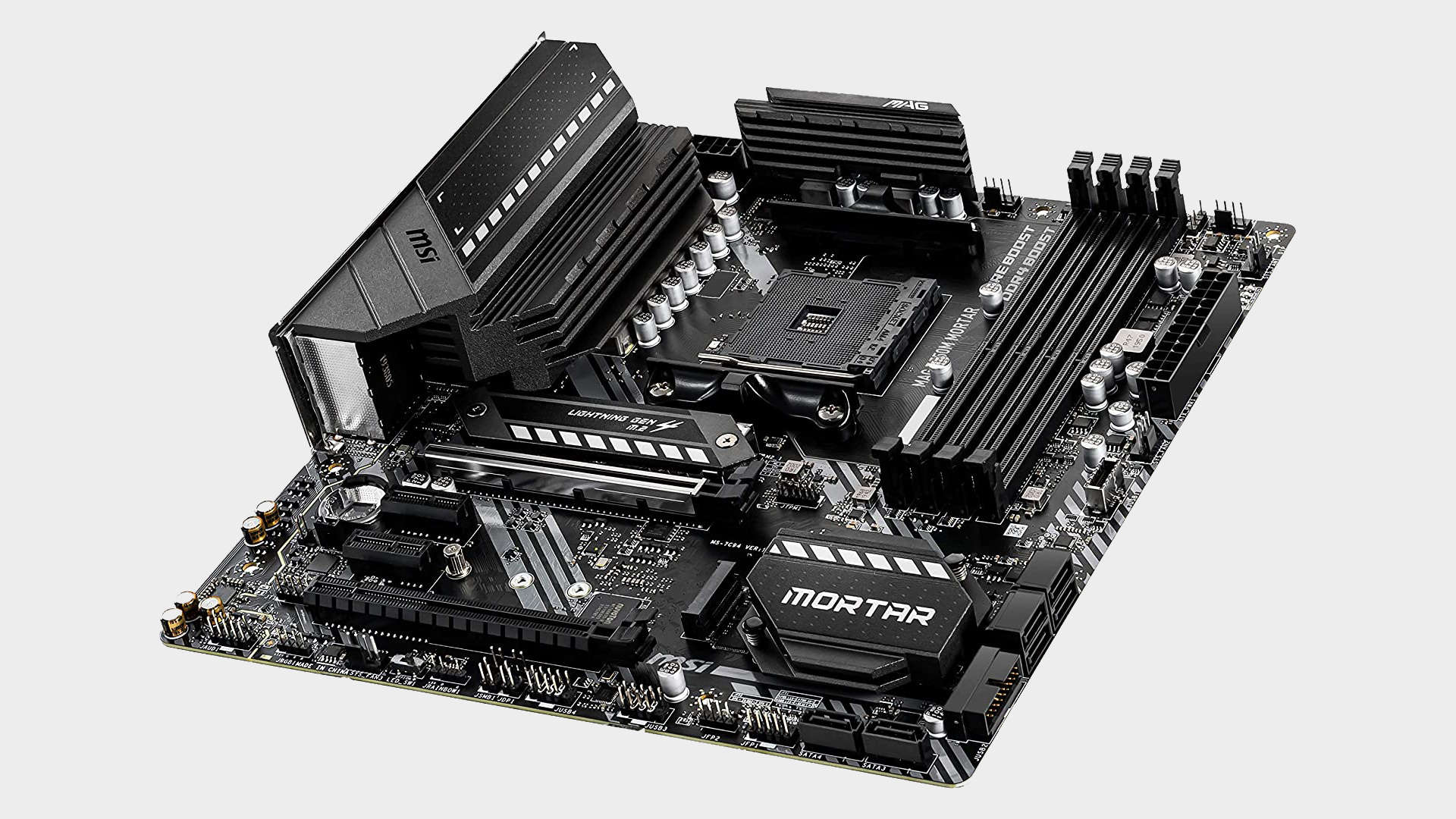

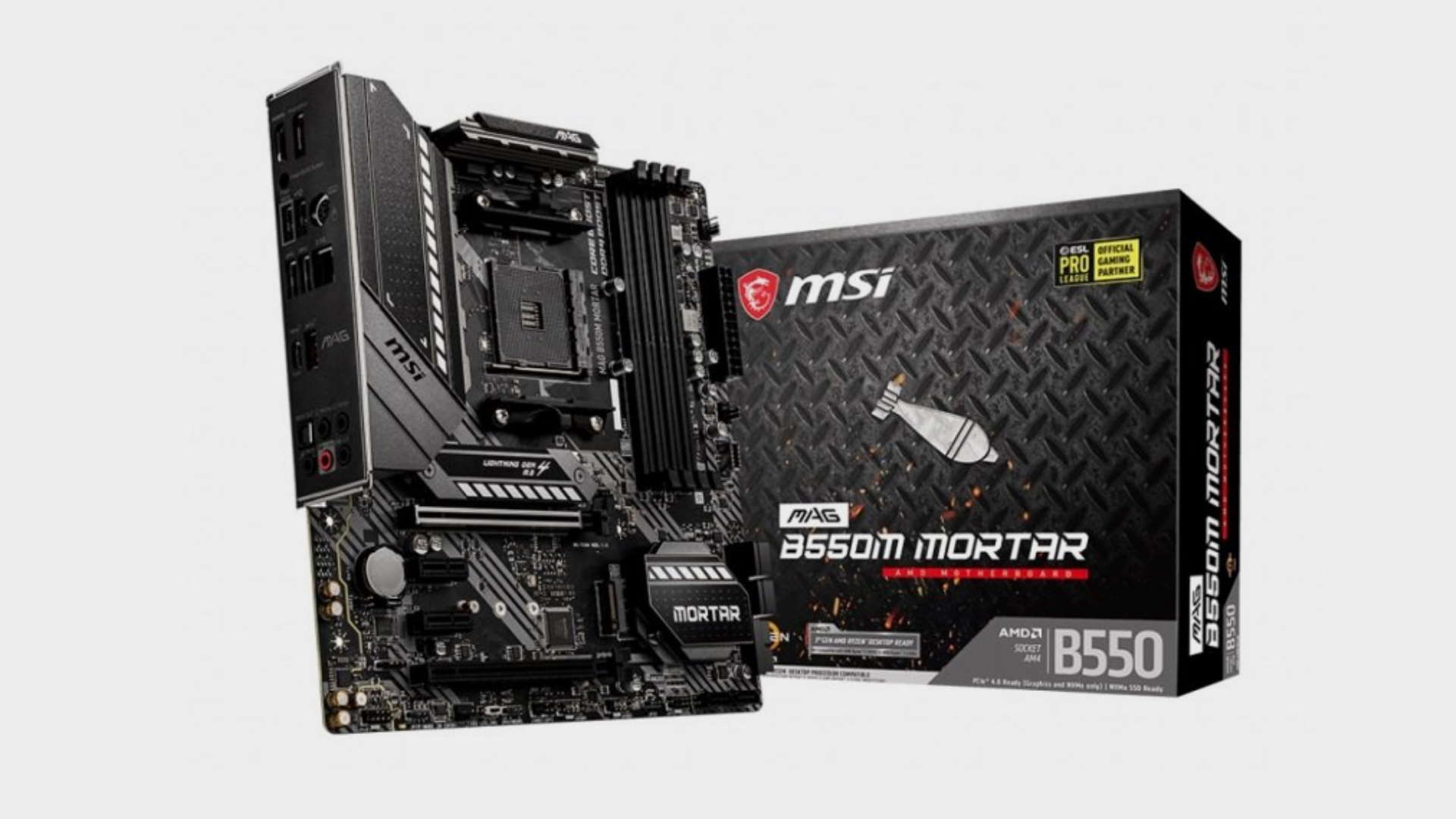
When it comes to gaming performance above all else, MSI's micro-ATX MAG B550M Mortar is your best bet for an affordable next-gen Ryzen machine. It comes in around the $160 mark, making it cheaper than a great many X570 and other B550 motherboards on the market right now.
The gaming frame rates of the MSI B550 Mortar put it above the rest of the B550 crew we've tested so far, and indeed its straight CPU performance puts it up there with some of the best X570s. That bodes well if you're looking for an affordable home for your AMD Zen 3 CPU; this B550 has a great chance to ensure it performs to its fullest stock-clocked potential without breaking the bank.
But you will be missing out on extra PCIe 4.0 M.2 and x16 graphics slots if those extras mean a lot to you. You can also opt to ditch wireless networking, depending on whether you pick the straight Mortar or the more expensive Mortar Wi-Fi 6 version. The 8+2+1 power phase design is arguably a more unwelcome miss, however, as that results in a board that isn't going to spark any overclocking joy in your heart. But, as an affordable gaming board without OC pretensions, it's a great shout.
Read our full MSI MAG B550M Mortar review.
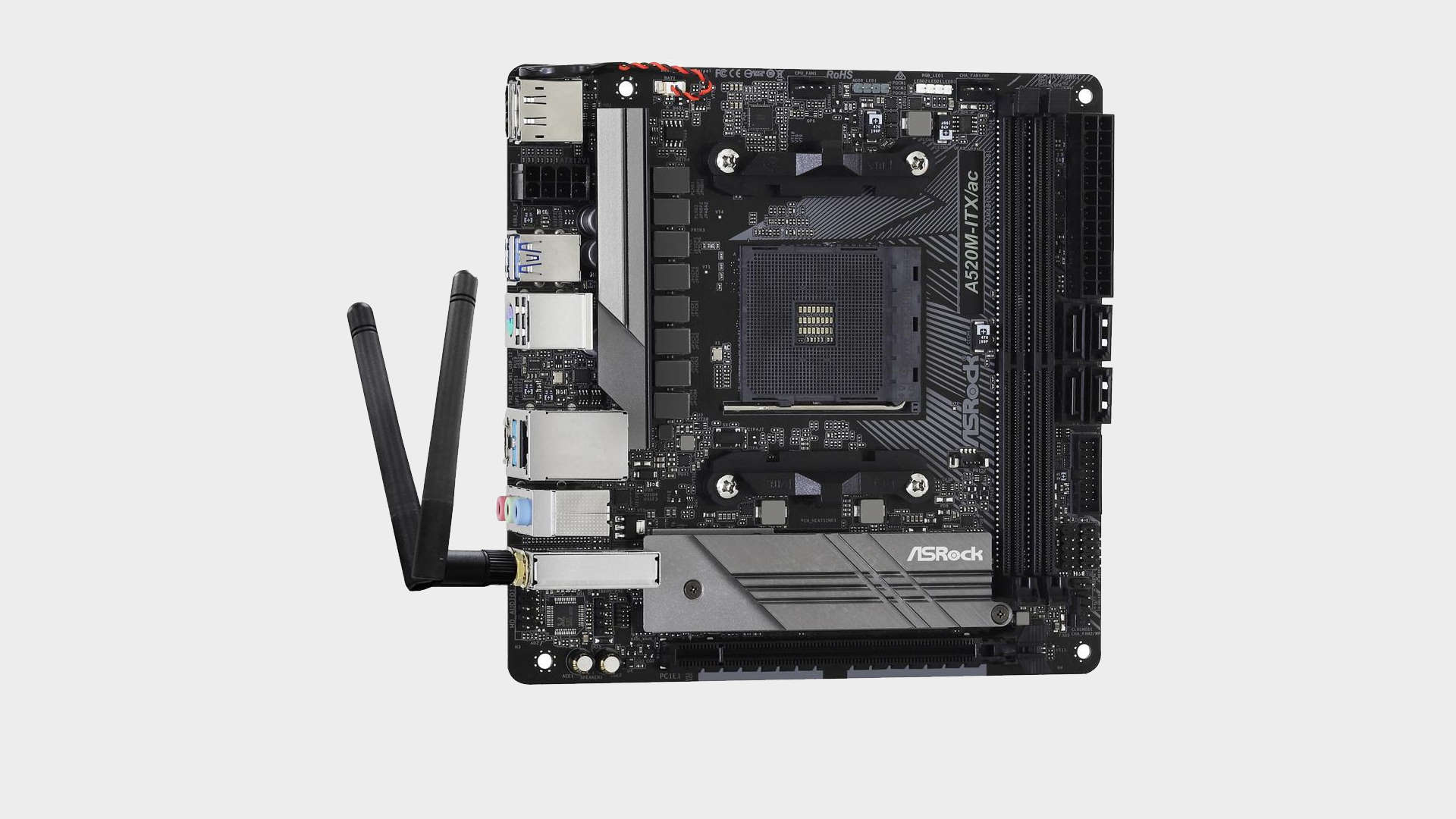
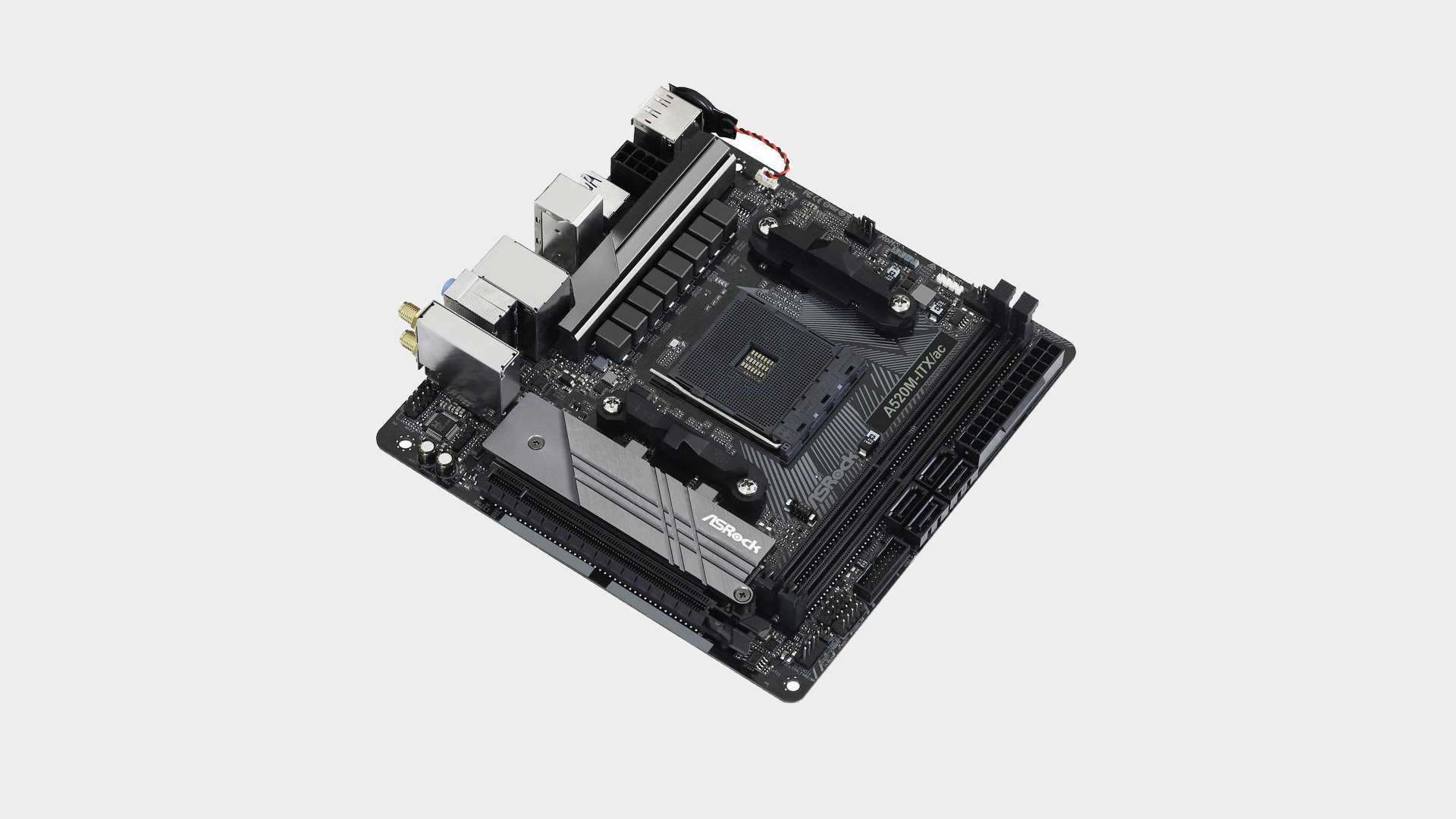
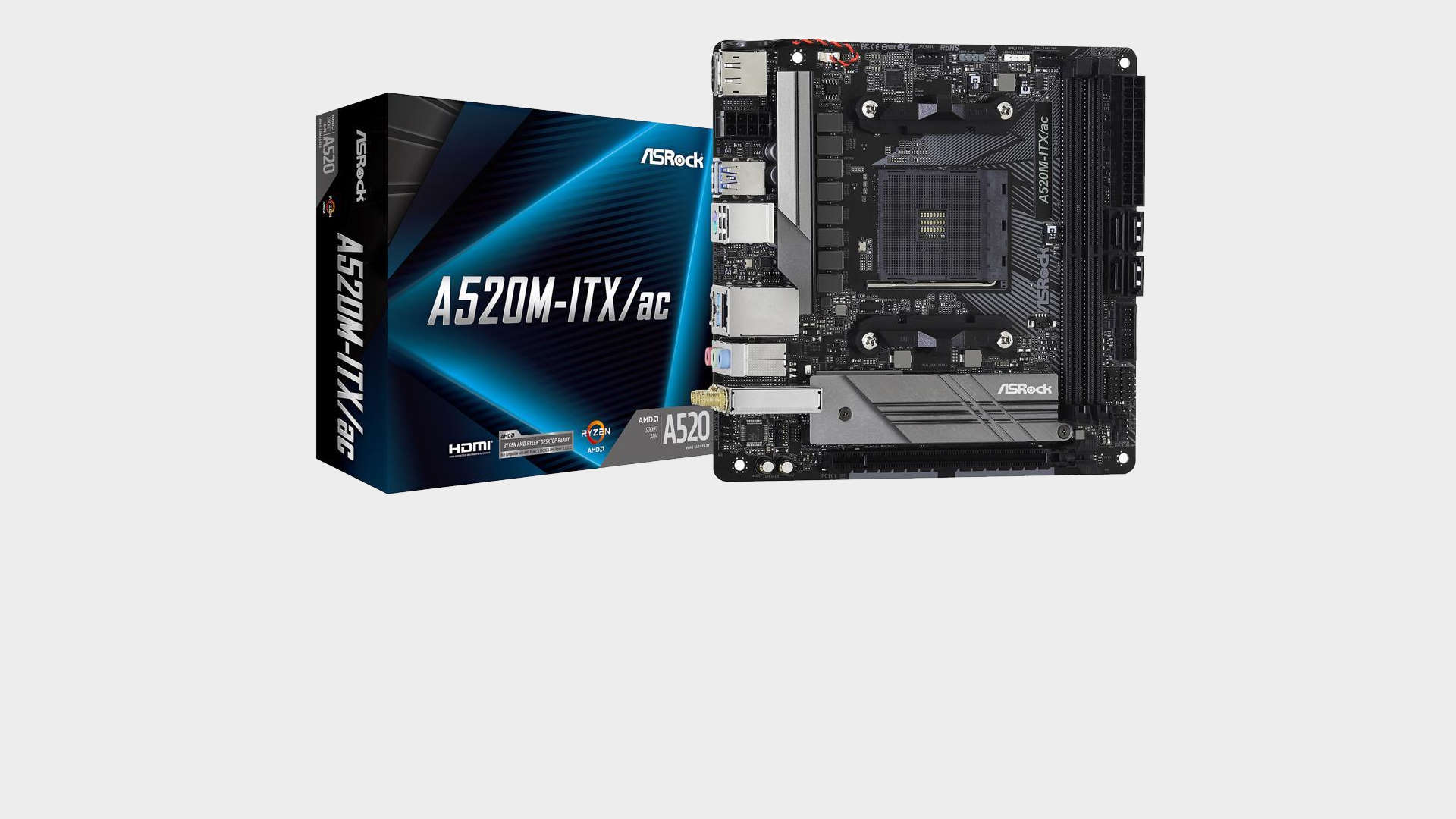
AMD's budget Ryzen motherboard chipset, the A520, has largely slipped under the radar. While B350 and B450 motherboards were mainly regarded as entry-level, A320 was strictly seen as resolutely low-end.
The introduction of B550 motherboards, and their associated move upward in price, left a big hole in the sub-$100 market. Enter the A520. If you're on a tighter budget and don't care about PCIe 4.0 or the overclocking support offered by B550, then the A520 motherboards might be exactly what you need. There's cheap, and there's cheap, but a decent A520 board can more or less do everything aboard at double the price can.

Best CPU for gaming: the top chips from Intel and AMD
Best graphics card: your perfect pixel-pusher awaits
Best SSD for gaming: get into the game ahead of the rest
Then there's the cherry on top, which supports AMD Ryzen 5000 series CPUs and Ryzen 4000 and 5000 APUs. Combine a Zen 3 CPU with a motherboard such as this ASRock A520M ITX/ac, and you'll be able to build an affordable and compact system that can beat a comparable Intel in any workload.
The ASRock A520M's audio is a bit of a let-down, but that's something that budget boards often compromise on. A gamer listening to compressed audio assets in-game probably won't be any less immersed, but you can opt for an external DAC if you desire one later in life, anyways.
The little ASRock A520M ITX/ac has it where it counts and will serve you well at the heart of a budget gaming system. It benefits from the strengths of the Ryzen platform and adds some future-proofing into the mix. ITX fans looking for a capable budget AMD Ryzen option should have this one on their shortlist.
Read our full ASRock A520M ITX/ac review.
Best AMD motherboard FAQ
What should I consider when buying a motherboard?
Aside from the type of chip you're getting—be that Intel or AMD—figure out how many M.2 slots and PCIe slots you need, as well as the number of USB ports that are acceptable to you.
Of course, keep in mind the scale of your build. Is space no object? Then go with an ATX board. But if you're looking to create a mini PC, you'll need a good mini-ITX motherboard. Thankfully there are some great options, and not only at the high end.
Here are some other options for the best gaming motherboards to check over.
What is the best AMD motherboard chipset?
The AMD X570 is the latest motherboard chipset for Ryzen 5000-series processors and has the most up-to-date features. It offers PCIe 4.0 support, dual-GPU configurations, and a wealth of tweaking and compatibility options. A newer version of this chipset is starting to appear, called the X570S, which removes the need for active fan cooling on the chipset itself, but is otherwise pretty much identical.
Which socket is compatible with AMD Ryzen CPUs?
There's a simple answer for this: AM4. One socket for every AMD Ryzen processor to date. That is due to change with the release of Zen 4, but we've still got a year before that's expected to drop. AMD has only guaranteed a continued use of that socket until 2020, which means we're in uncharted territory today.
AMD says it will only change the socket when such a change is required, at least. It says that's primarily tied to the schedule of industry I/O technologies, many of which will be out of AMD's hands directly. Whether it builds out a new pin configuration and socket will depend on the features available on said platform and chip, which is how it's supposed to work.
A single socket does not necessarily mean broad compatibility backward and forwards between Ryzen CPU generations, though. That's down to the chipset.
Which motherboard chipset do I need for my AMD Ryzen CPU?
Today's most relevant motherboards for a new CPU buyer are those equipped with the following chipsets: X570, B550, X470, and B450. The 'X' prefix denotes the high-end motherboards, while the 'B' indicates the close-run mid-range models. There's also the 'A' prefix for the entry-level, but these come usually strapped for features and are not that much cheaper than entry-level B450 boards—plenty of options.
The 500-series chipsets are the latest to arrive, while the 400-series is generally a little older—not always, however, as Asus is still pumping out new B450 motherboards even today. Both technically support the latest Ryzen 5000-series and Ryzen 3000-series processors, but with some features missing within those packing older parts. The most notable of these omissions is PCIe 4.0 support for increased platform bandwidth—despite rumors, only 500-series motherboards are PCIe 4.0 ready.

Post a Comment